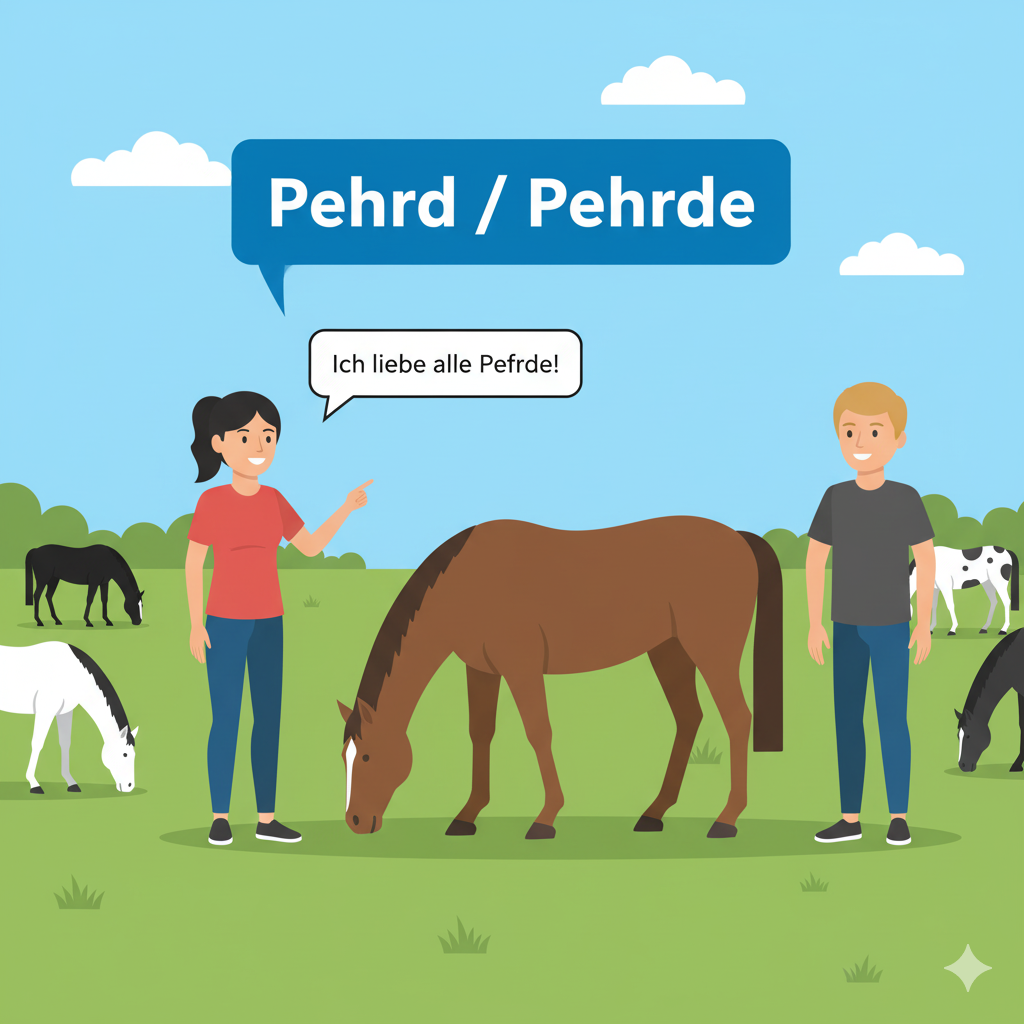VokabelnA1(1)
1/67
Earn XP
Name | Mastery | Learn | Test | Matching | Spaced |
|---|
No study sessions yet.
68 Terms
draußen
adverb
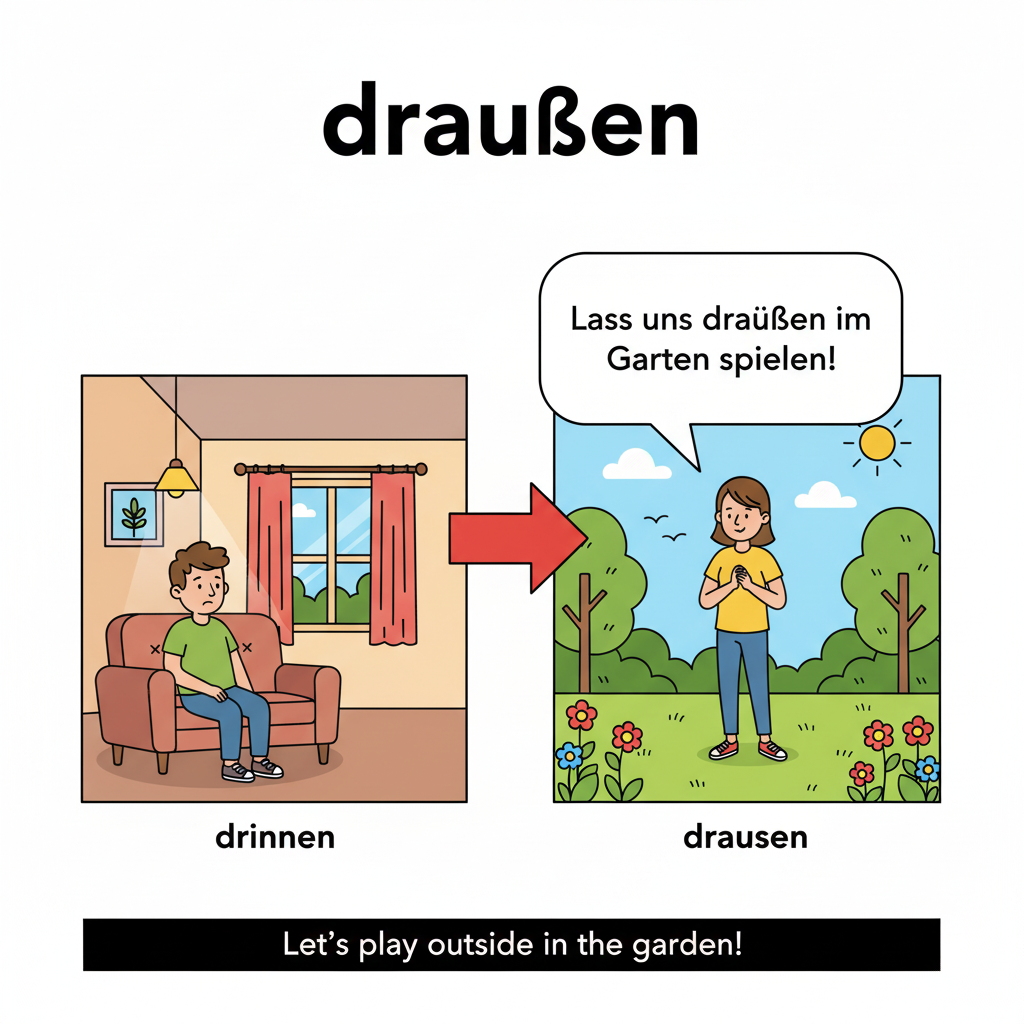
der Regenschirm
der Regen, der Schirm
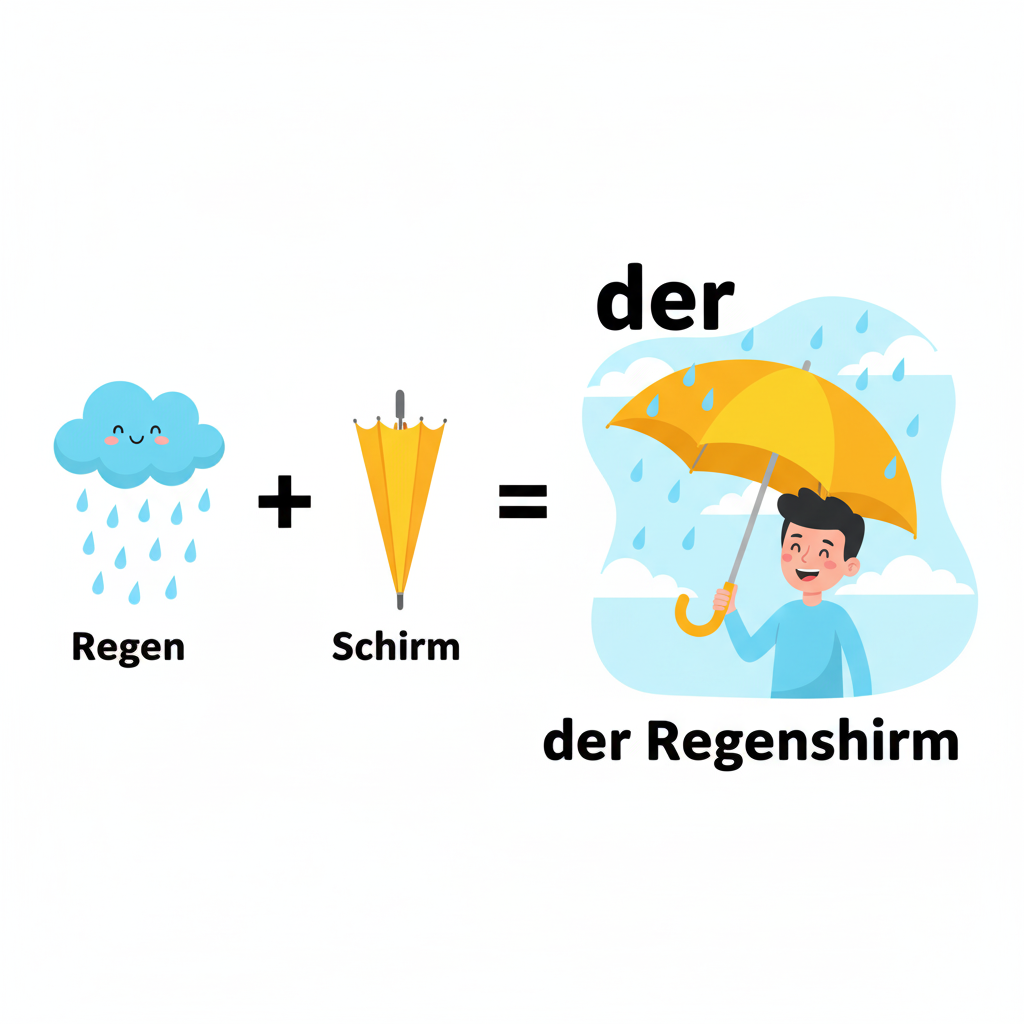
die Bushaltestelle
der Bus, die Haltestelle
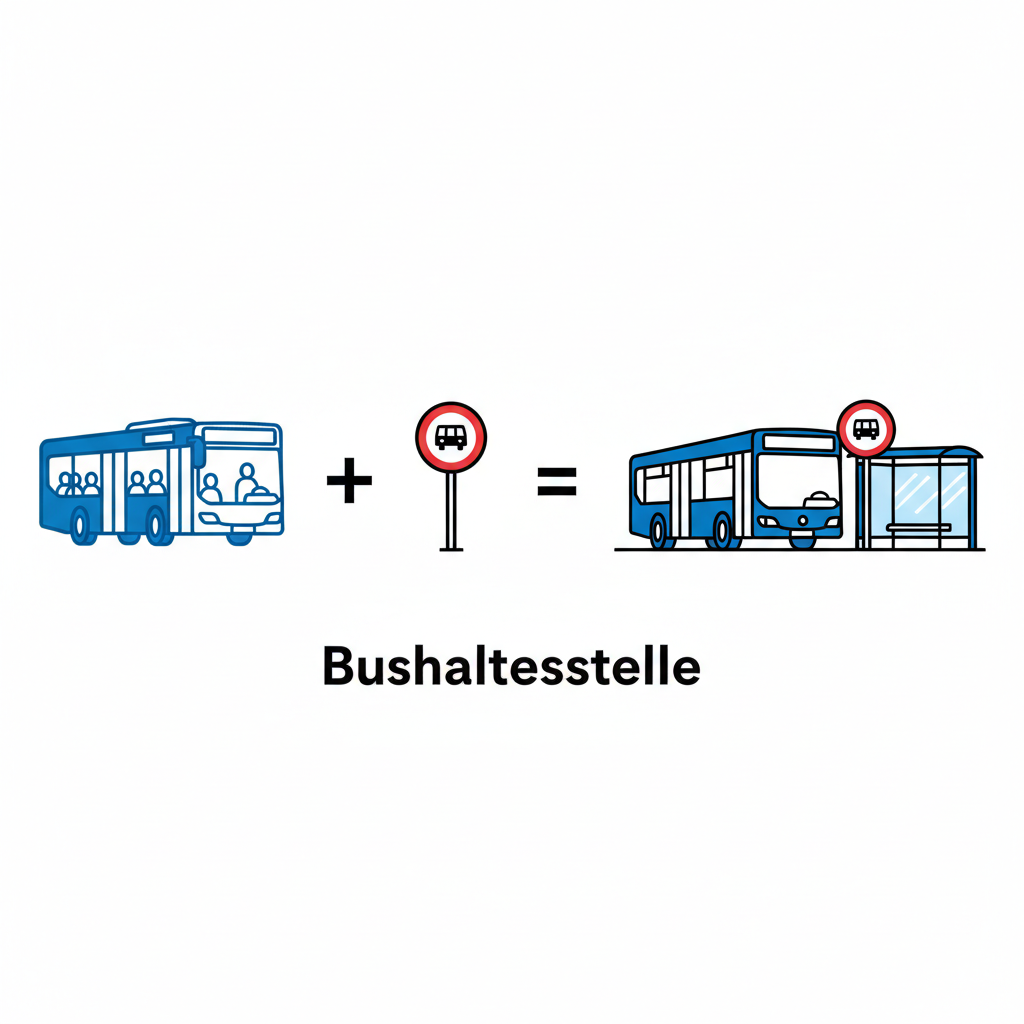
feiern
feiert, feierst
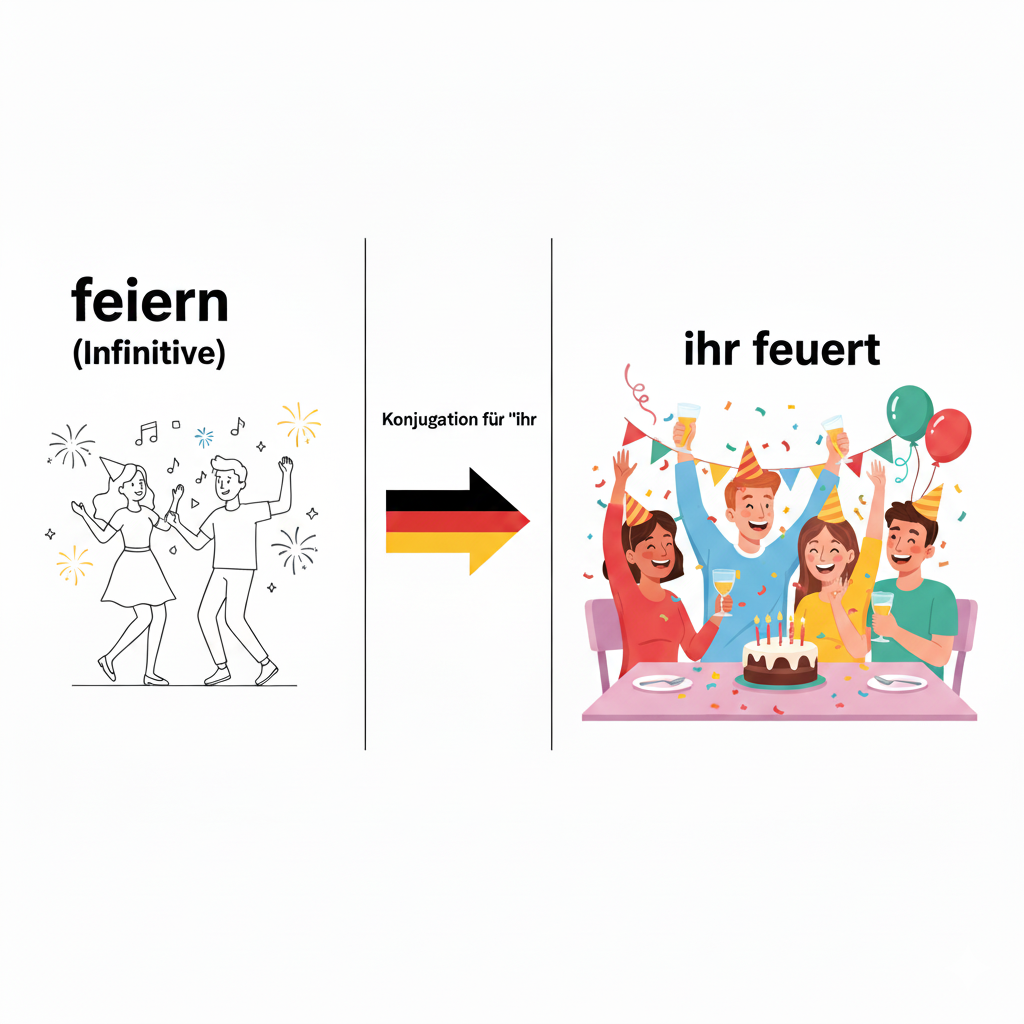
auf jeden Fall
no matter what/definitely
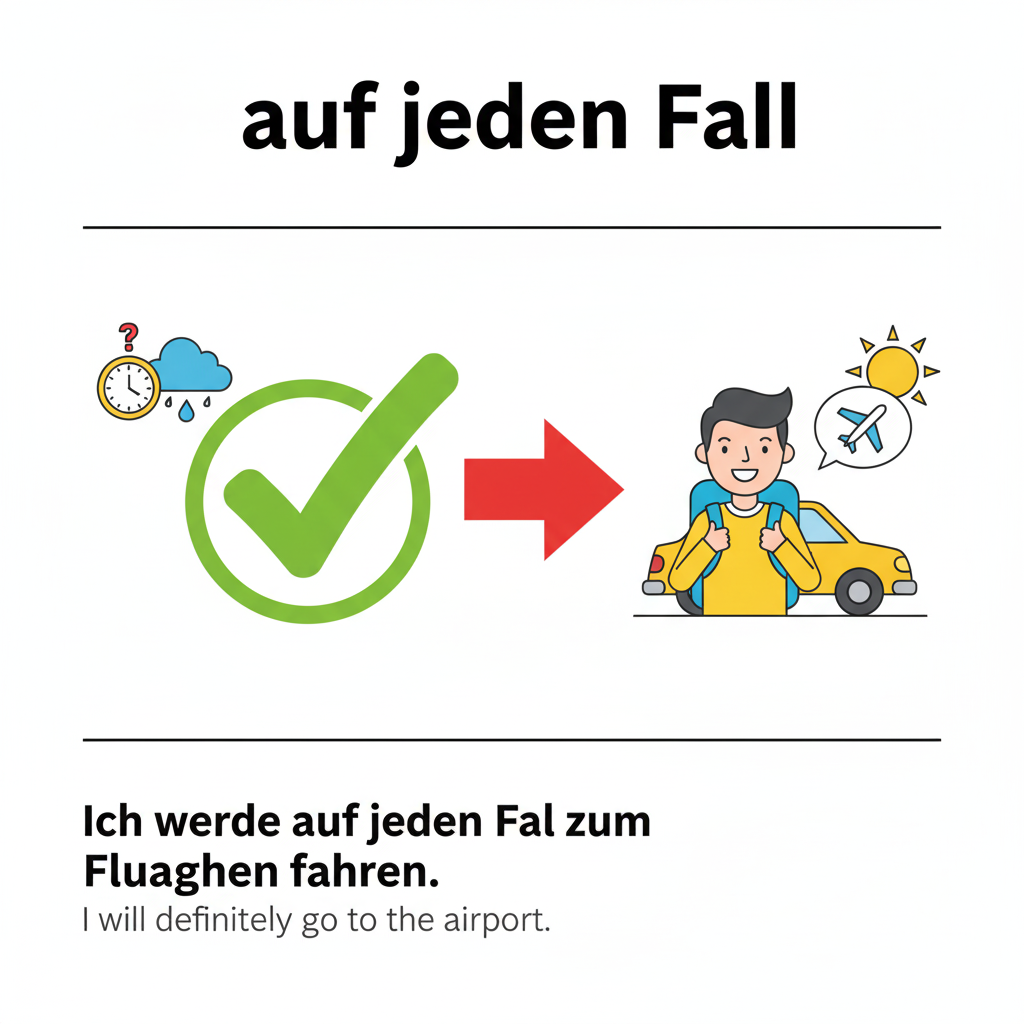
die Verspätung
ver-spät-ung
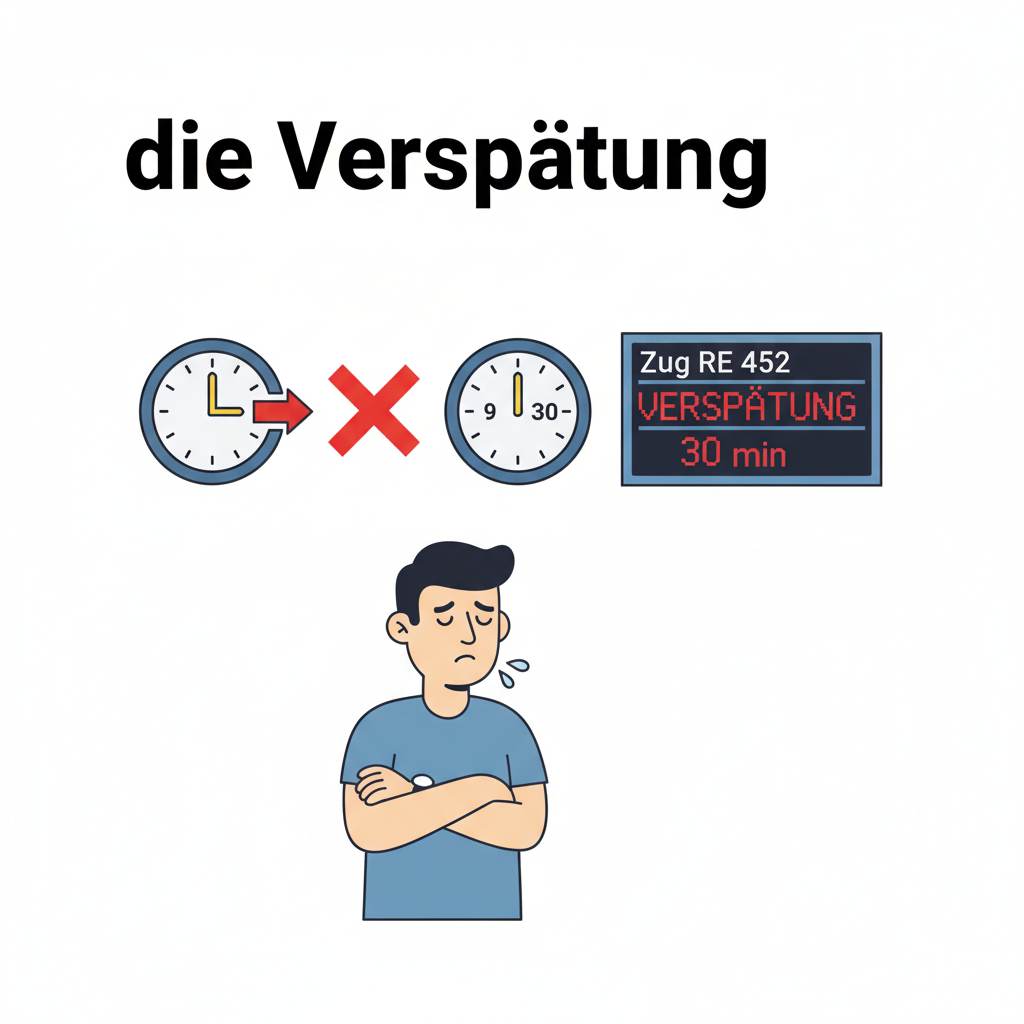
die Einladung
ein(into) + ladung(space)
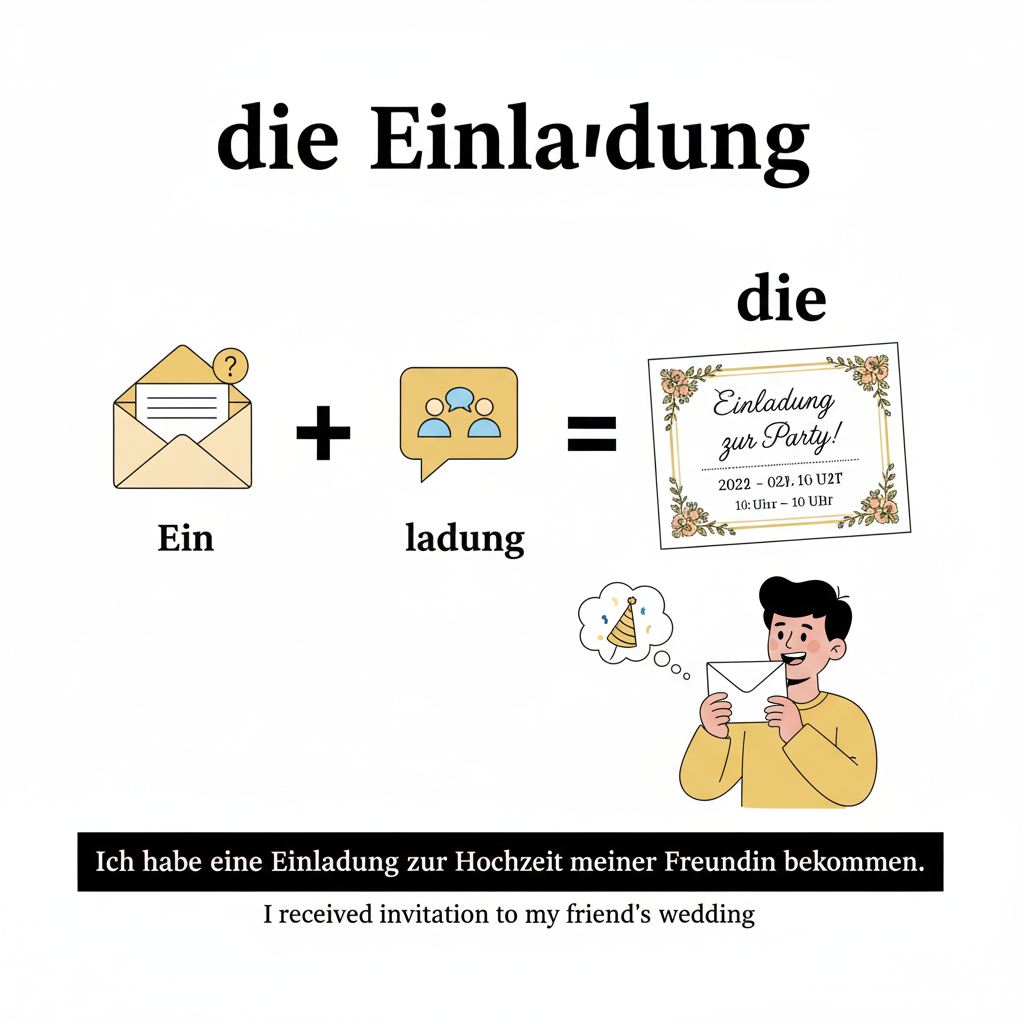
das Mittagessen
der Mittag, das essen
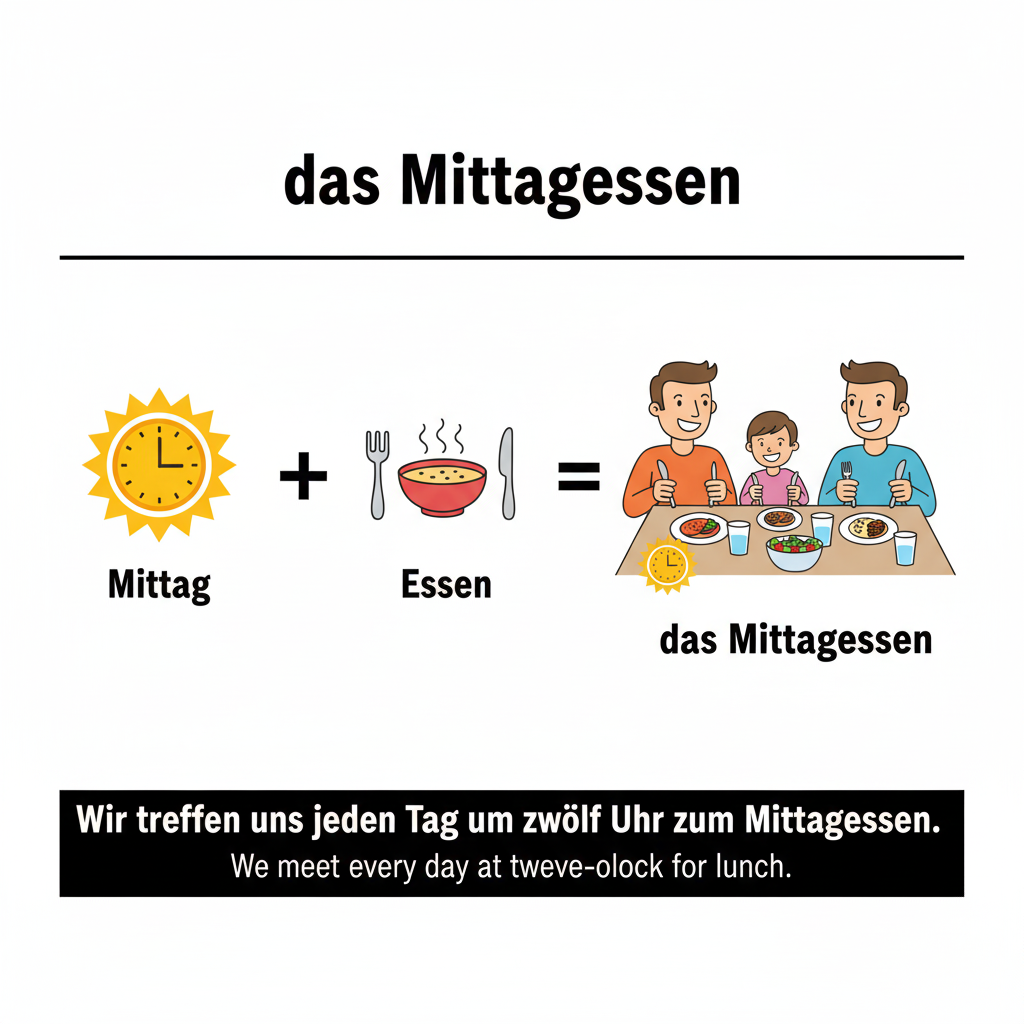
gesund
healthy
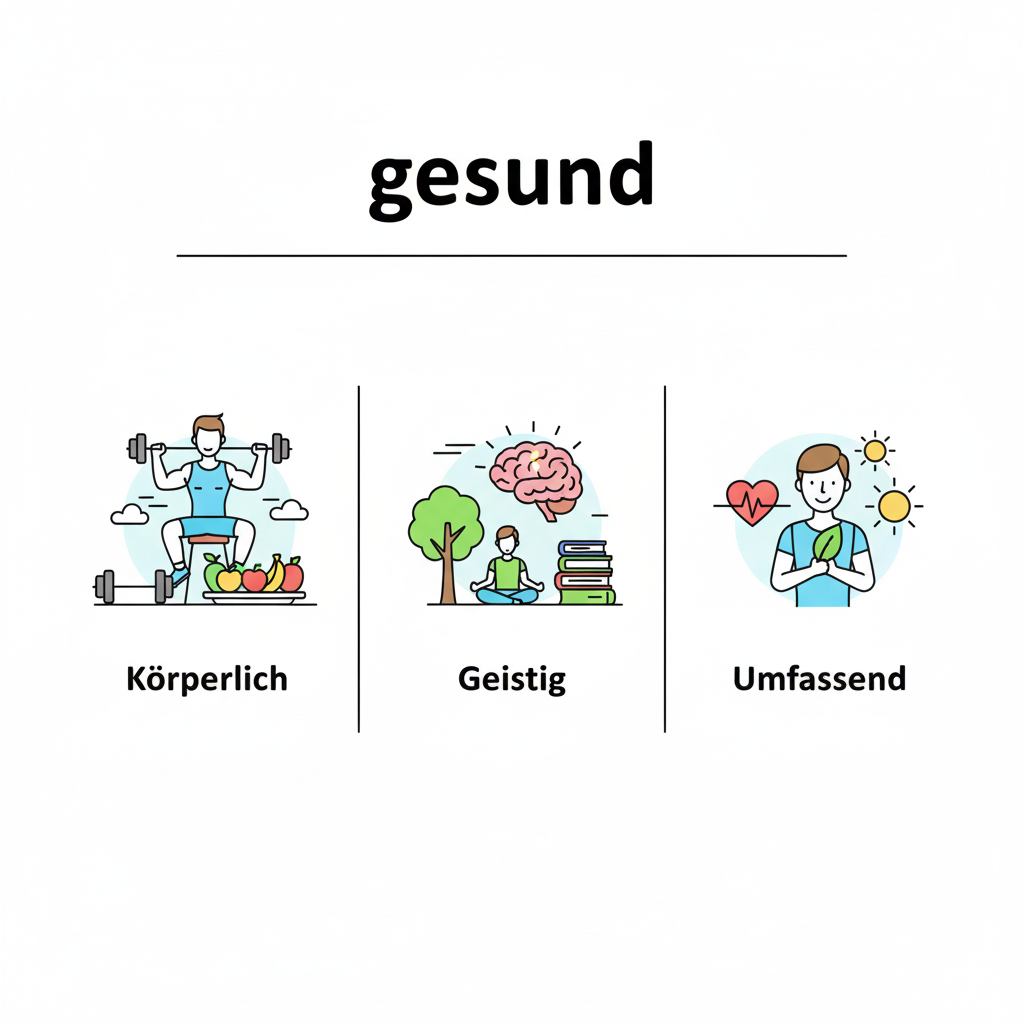
die Lust
“I don't feel like it" or "I'm not in the mood."
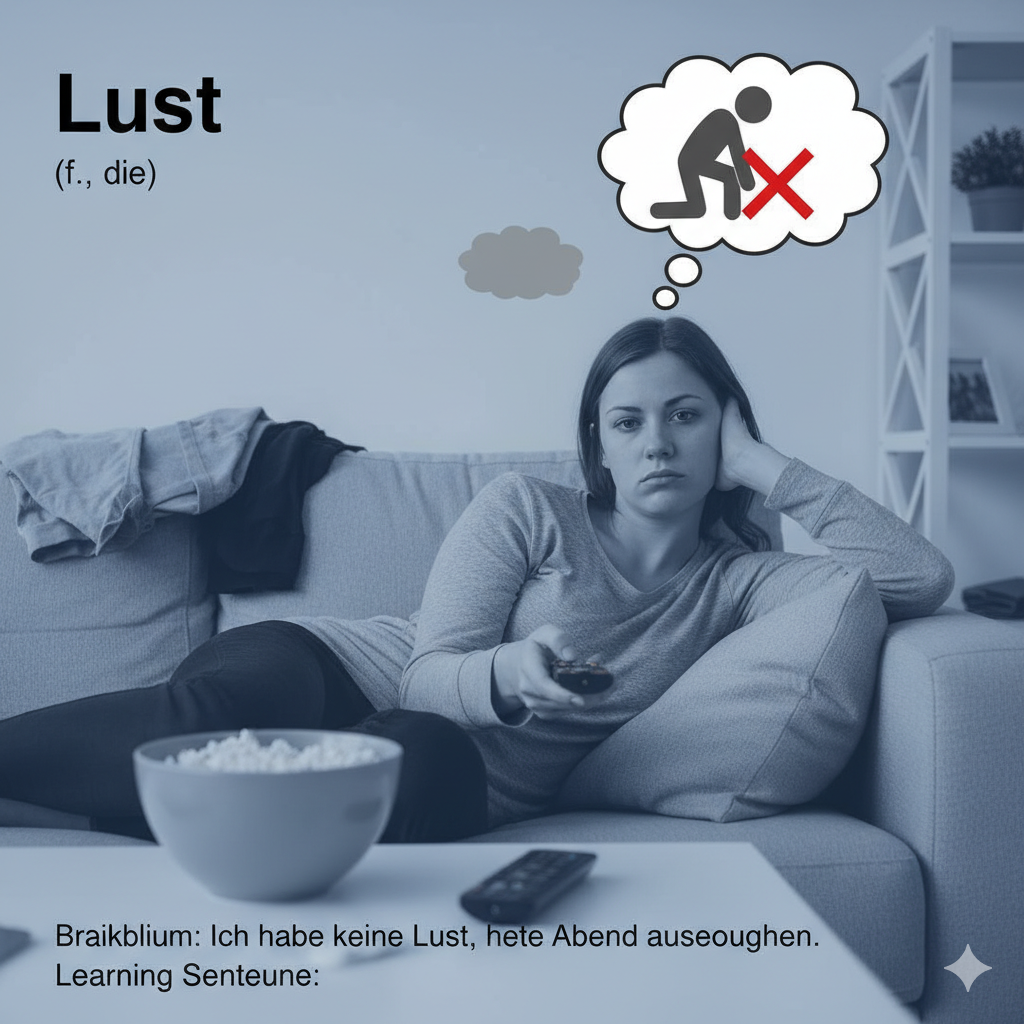
der Wald
Jungle/Forest

wiederholen
wieder - again, holen - fetch/get
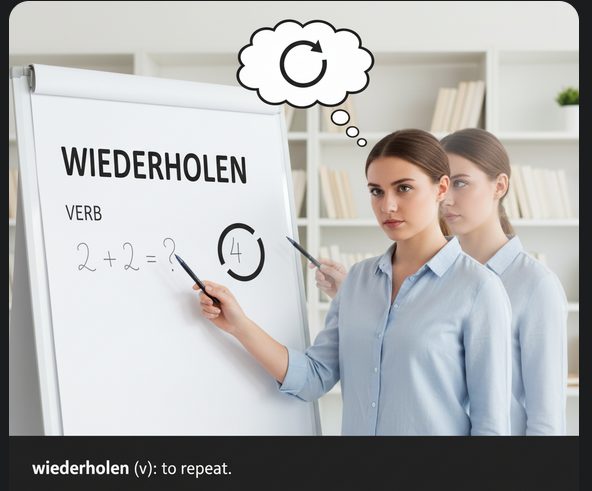
bestimmt
Haben Sie eine bestimmte Frage?
Luca kommt bestimmt auch mit.
(definitely, adv.), (specific, adj.)
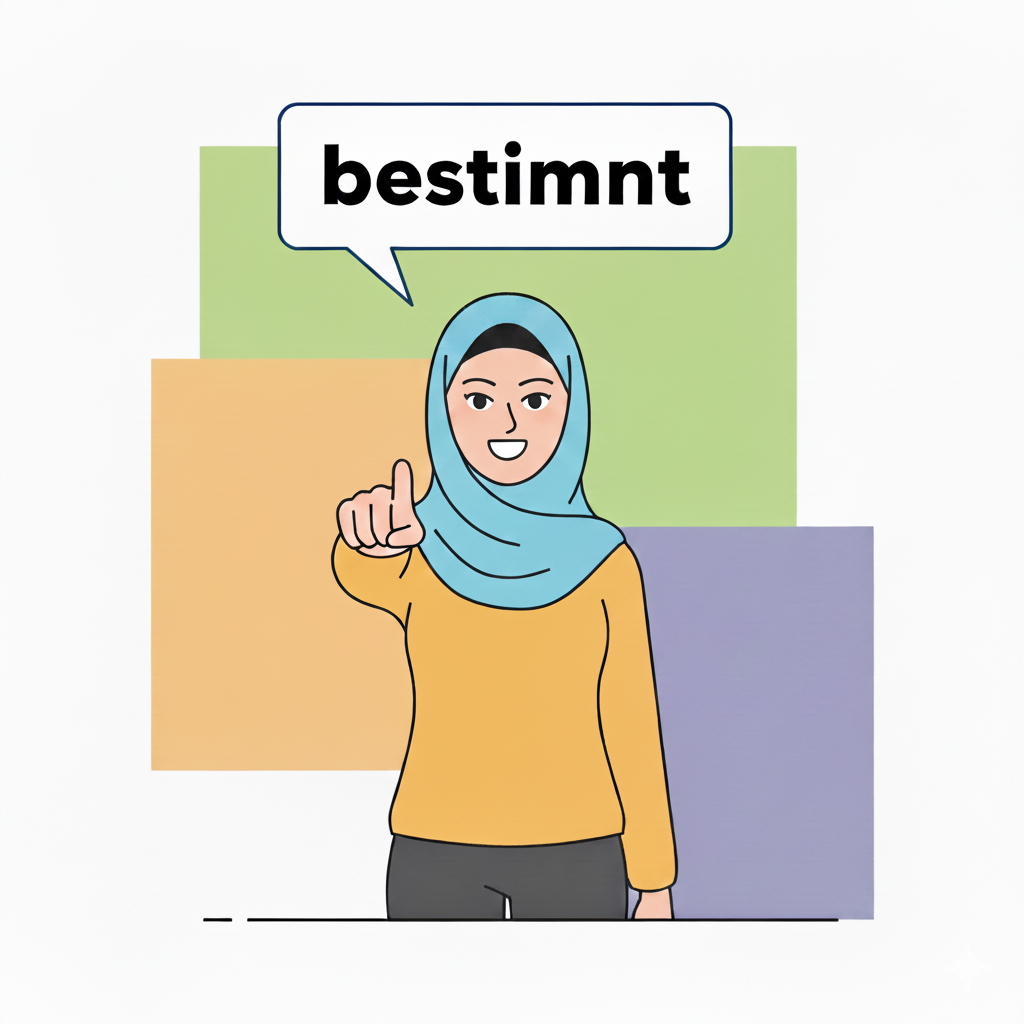
die Kopfschmerzen
der Kopf = the head
die Schmerzen = the pains
Bauchschmerzen (stomach ache)
Zahnschmerzen (tooth ache)
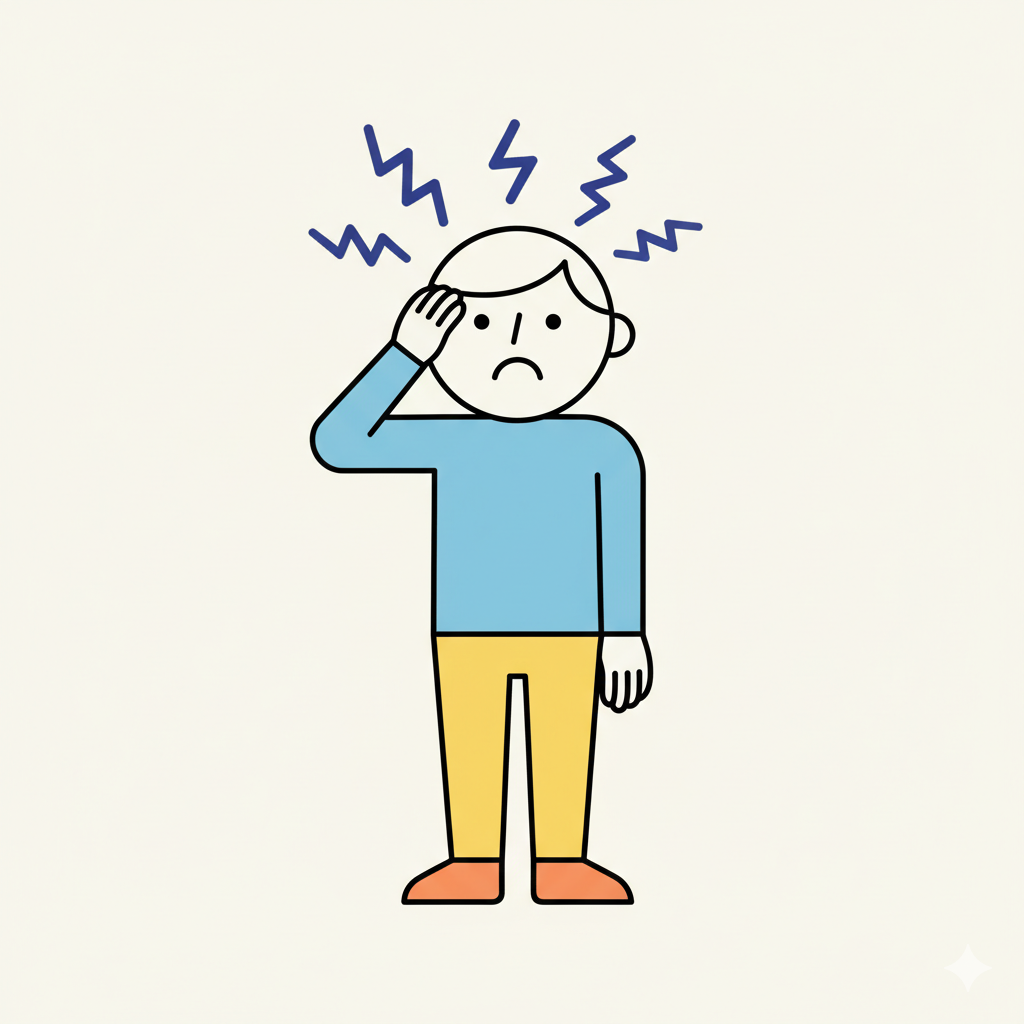
durst
Möchtest du Wasser? Hast du ________?
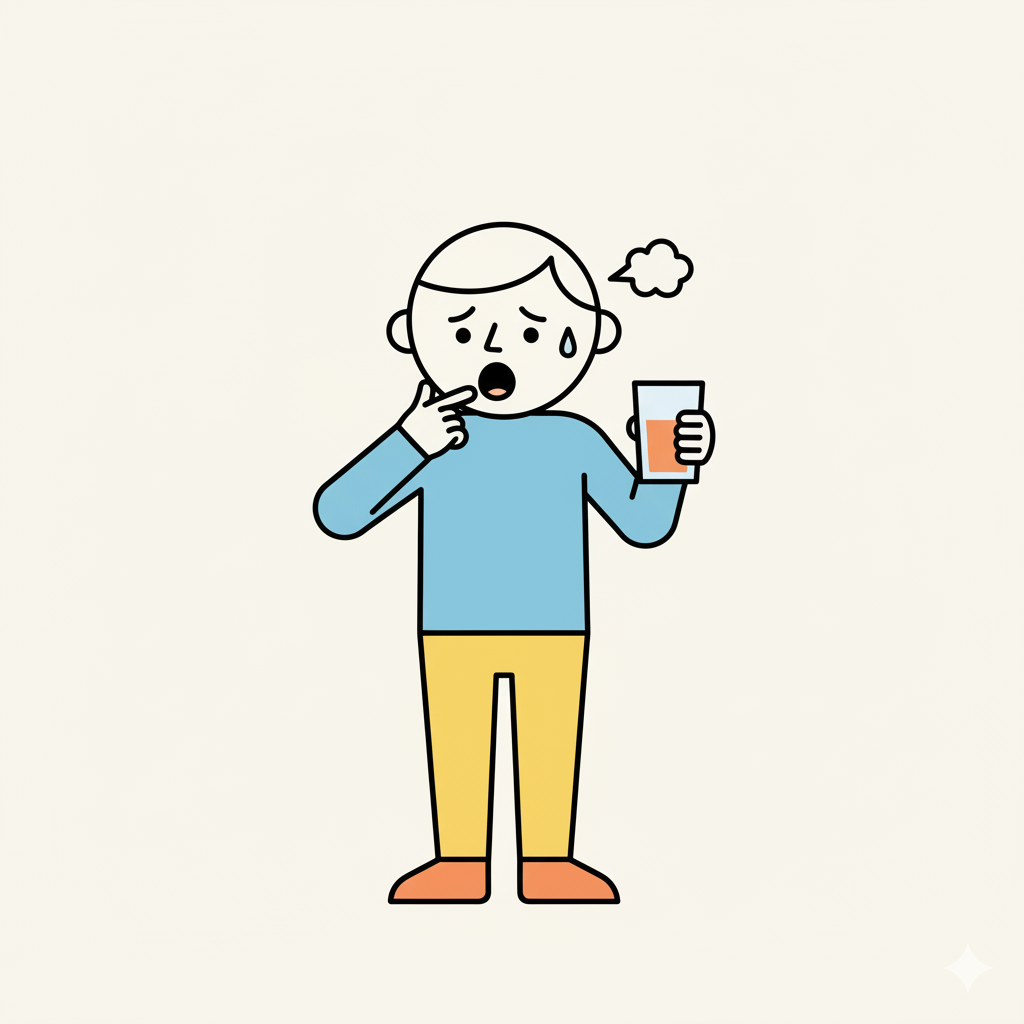
traurig
die Trauer(sadness)
antonym - glüklich (glük)
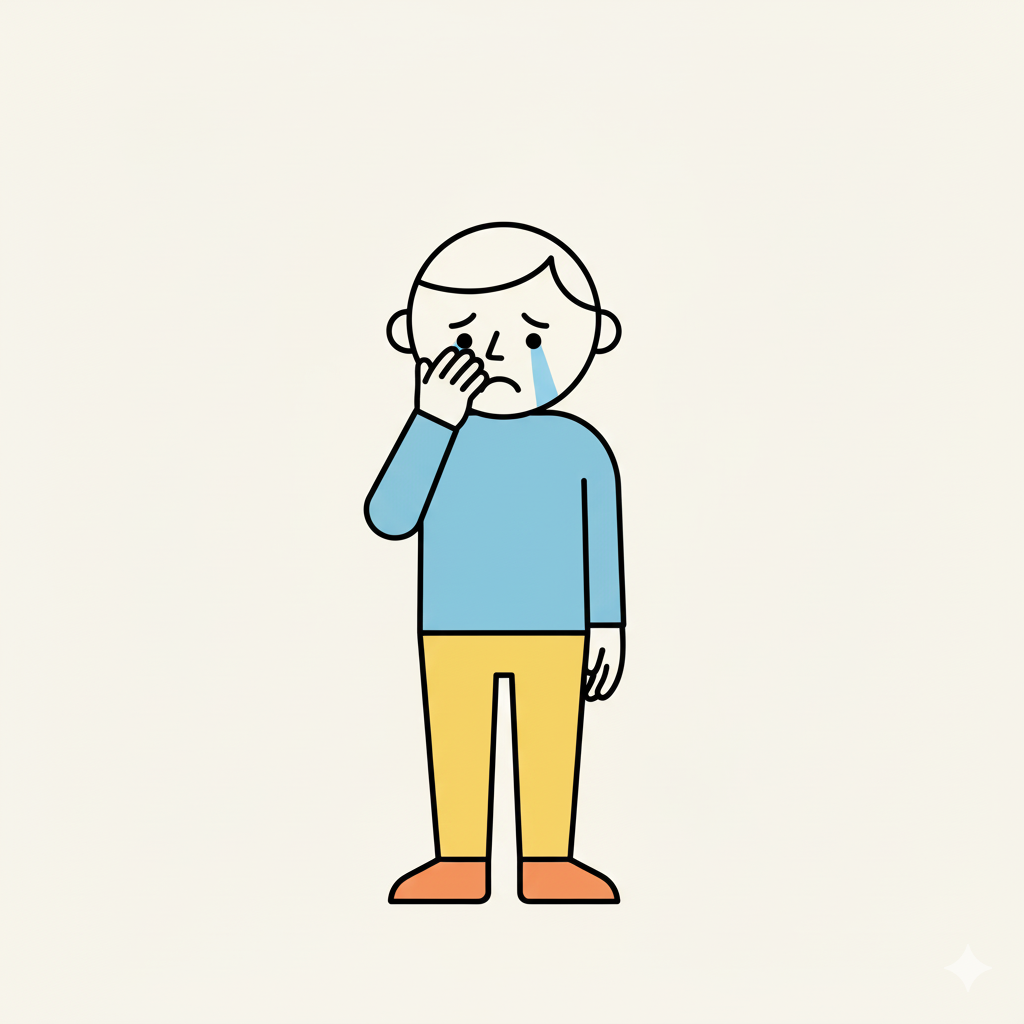
die Befehlsform
Imperative
komm, geh, sprich
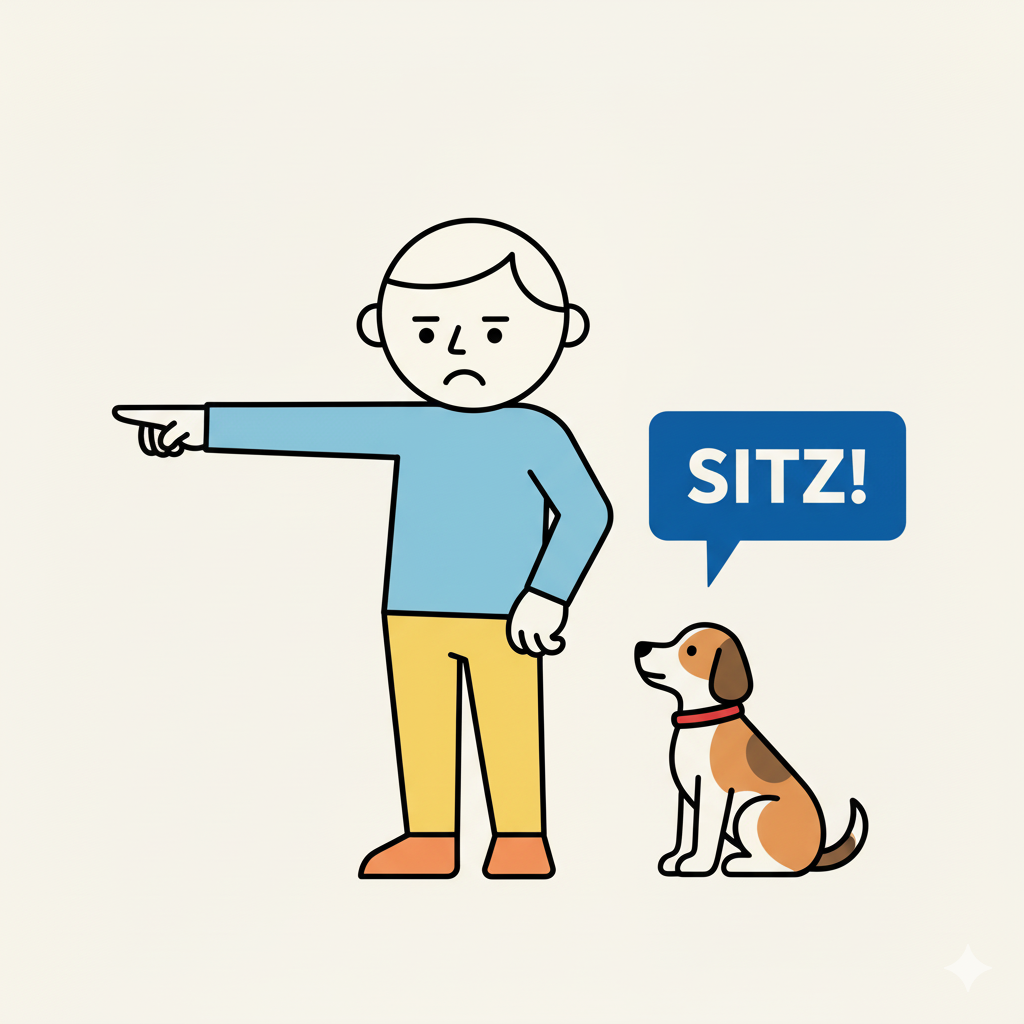
bleiben
Wie lange bleibt ihr in Khulna?
Ich bin krank und bleibe heute im Bett.
(to stay)
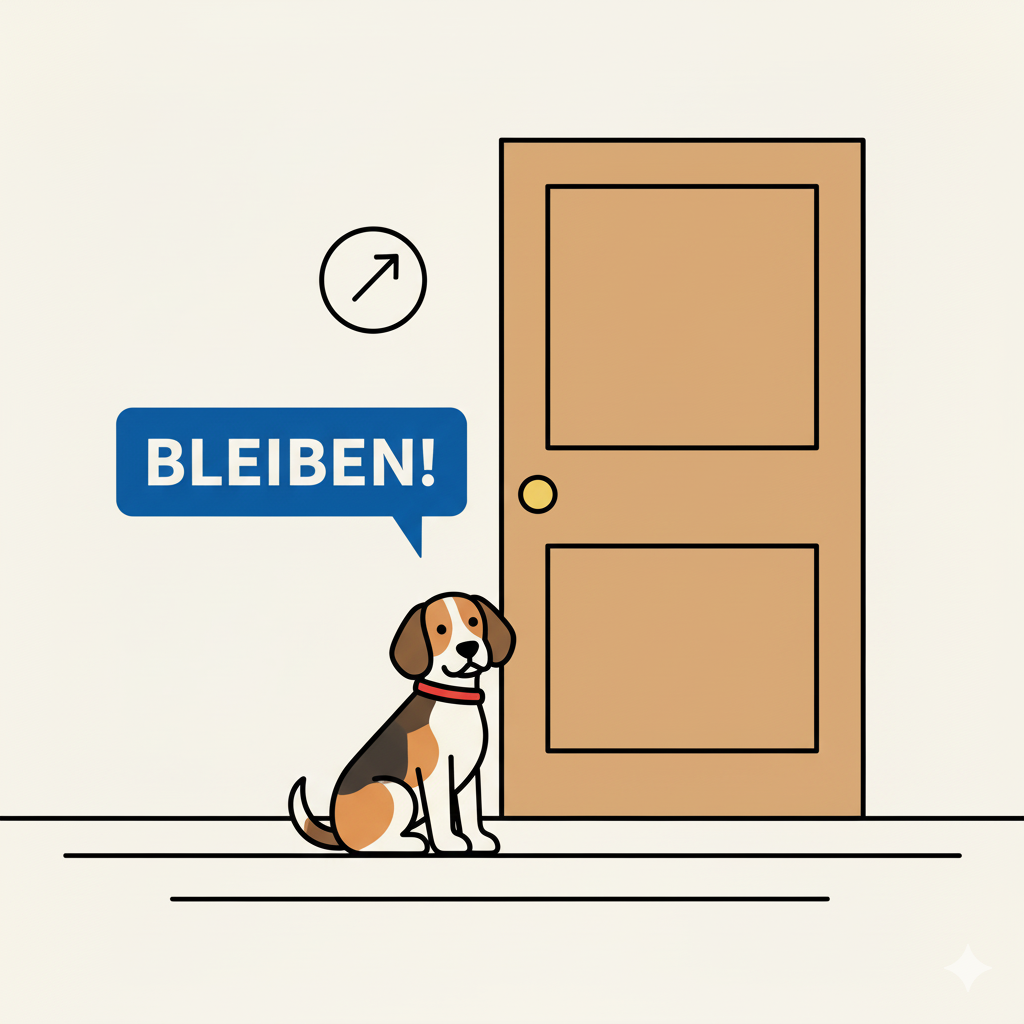
gute besserung
die Besserung = recovery!
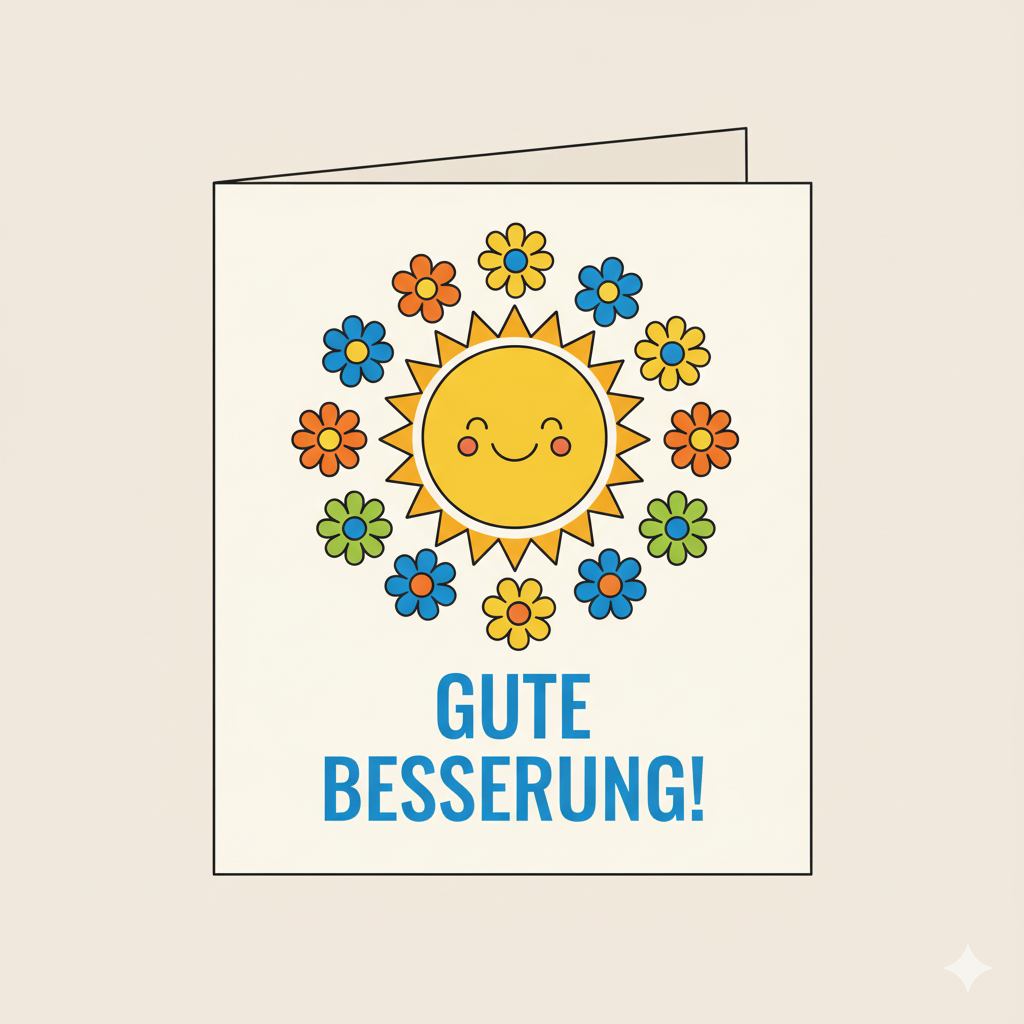
stornieren, leise, das Reisezentrum
die Reise , das zentrum
Das Reisezentrum ist der Ort, an dem man Reisen bucht oder storniert. Wenn es dort voll ist, muss man leise sein. (The travel center is the place where you book or cancel trips. If it is crowded there, you have to be quiet.)
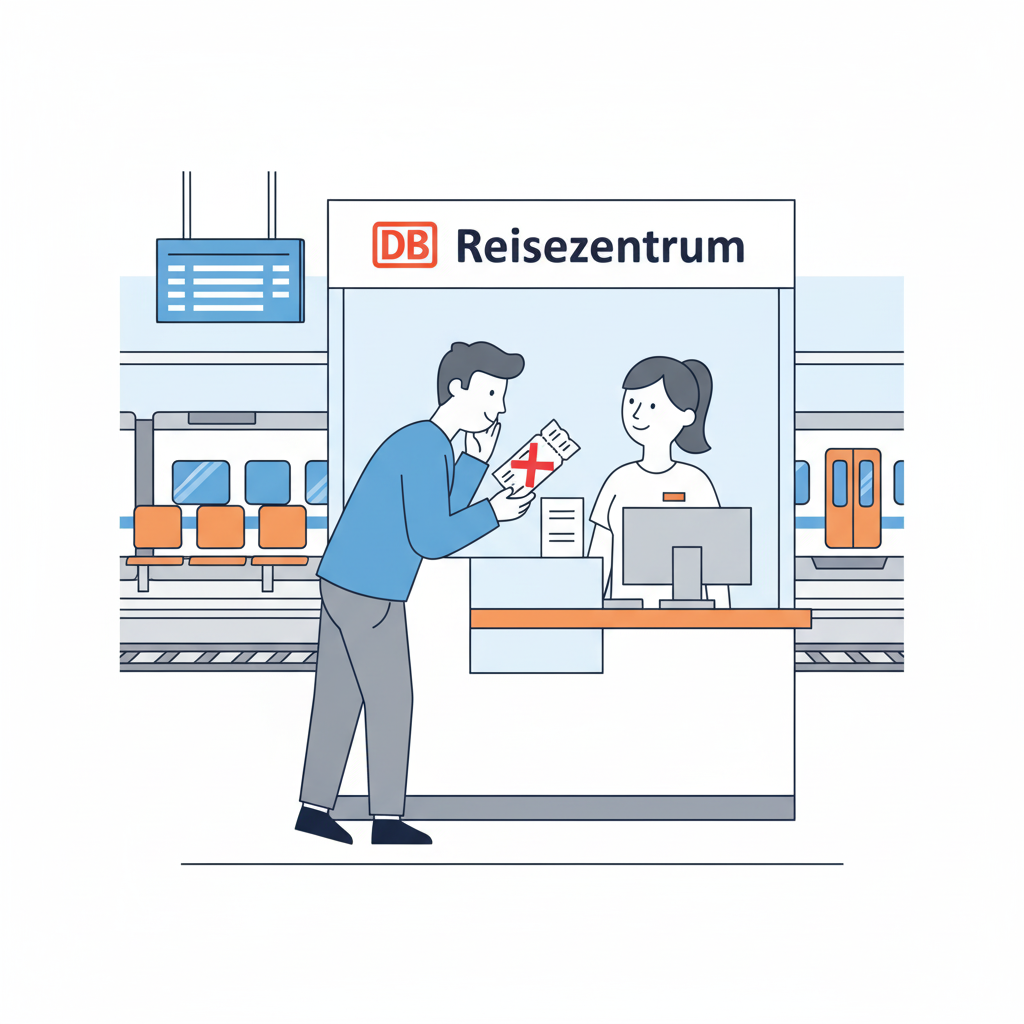
das Mädchen, lustig, die Monate(der Monat)
-chen == neuter, even though Girl is feminine.
Ein lustiges Mädchen (A funny girl)
Das Mädchen ist eine lustige Person. Sie macht jeden der zwölf Monate im Jahr einen Witz. (The girl is a funny person. She makes a joke every one of the twelve months of the year.)
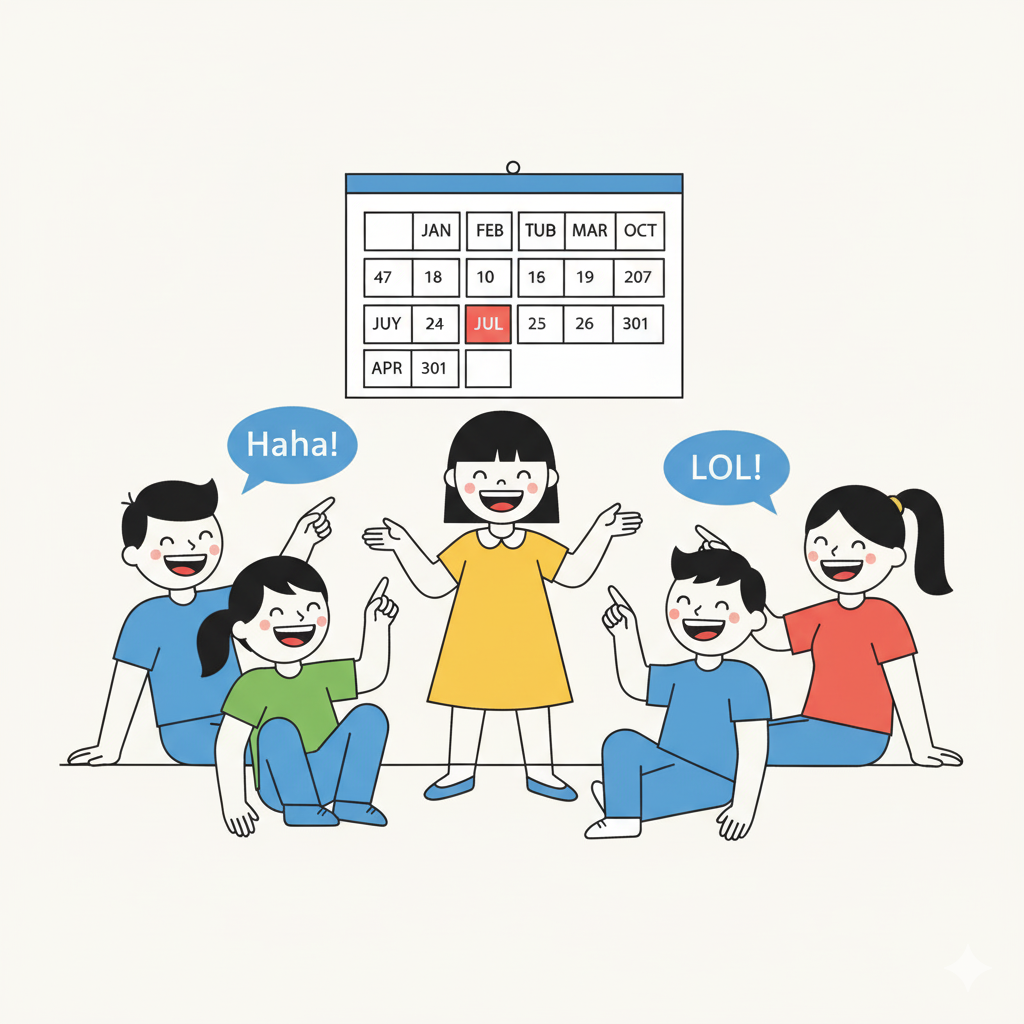
das kind, freundlich, fast
Das Kind ist fast acht Jahre alt.
(fast = almost, freundlich = friendly)
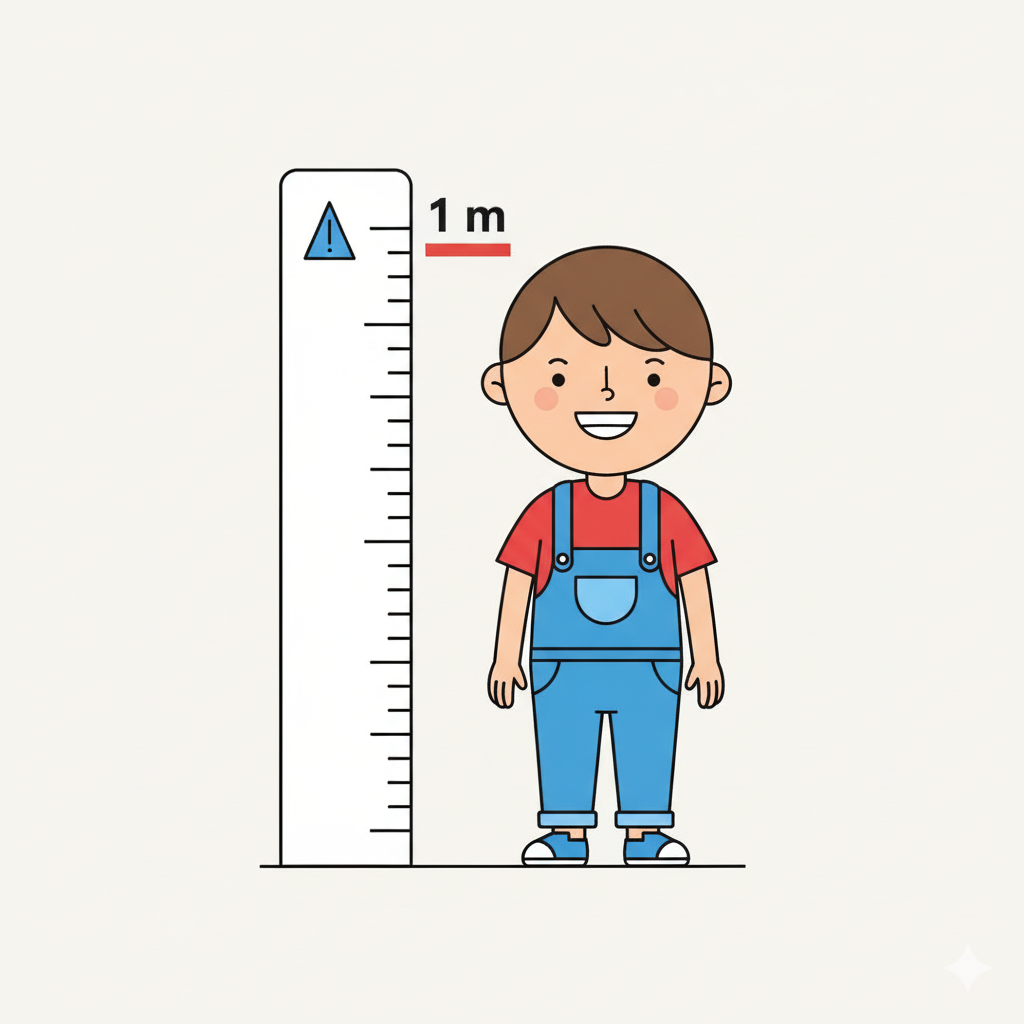
Es macht Spaß
It is fun
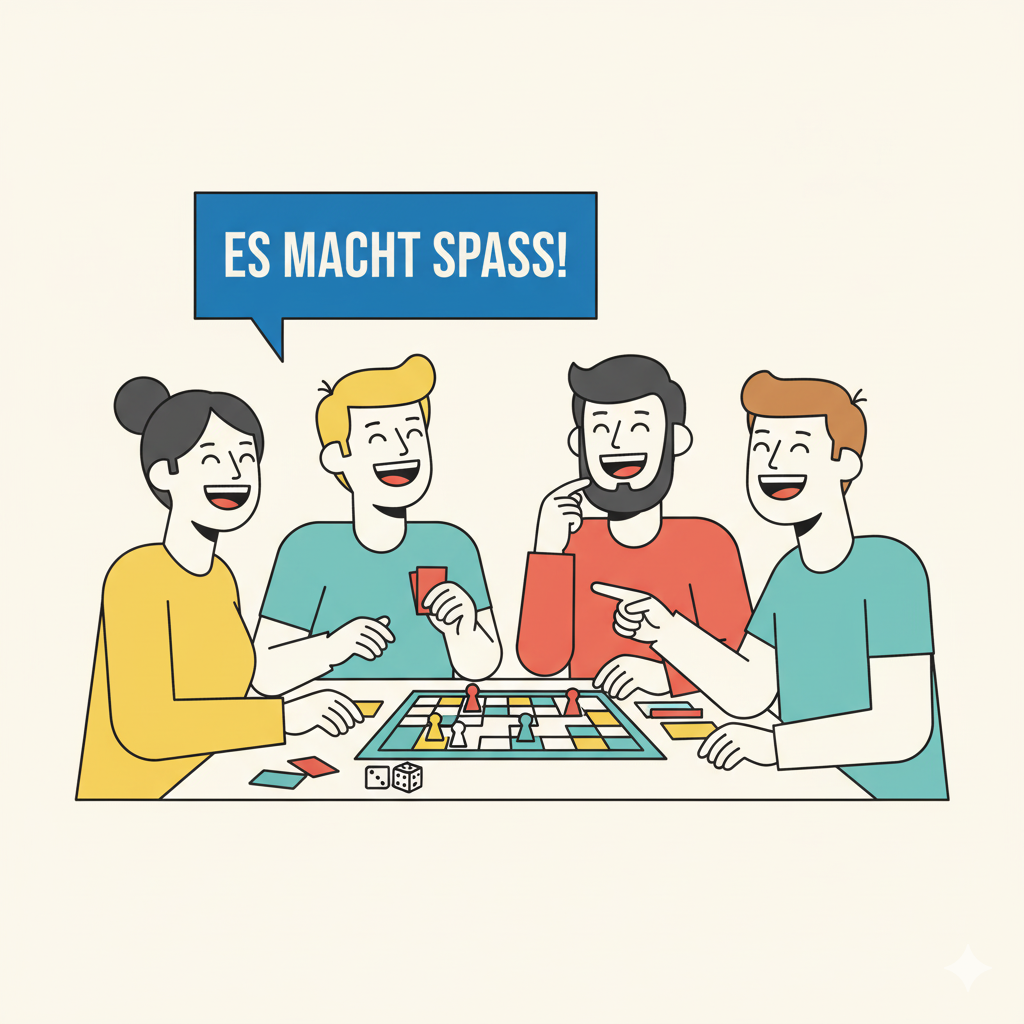
beliebt
Adjektiv
Ein beliebter Sport (A popular sport) - masculine
Die beliebte Sängerin (The popular singer) - feminine
Das beliebte Buch (The popular book) - neuter
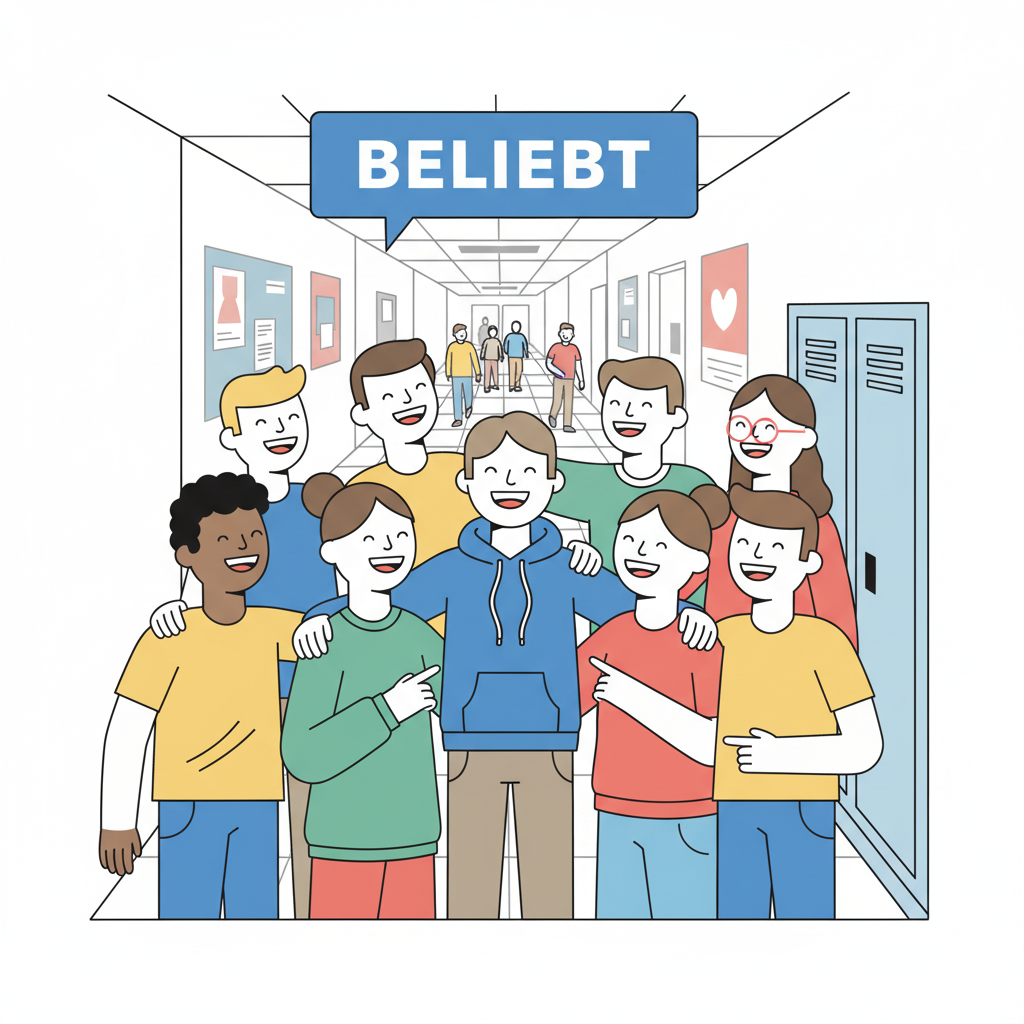
die Hauptstraße
das Haupt, die Straße
The main street
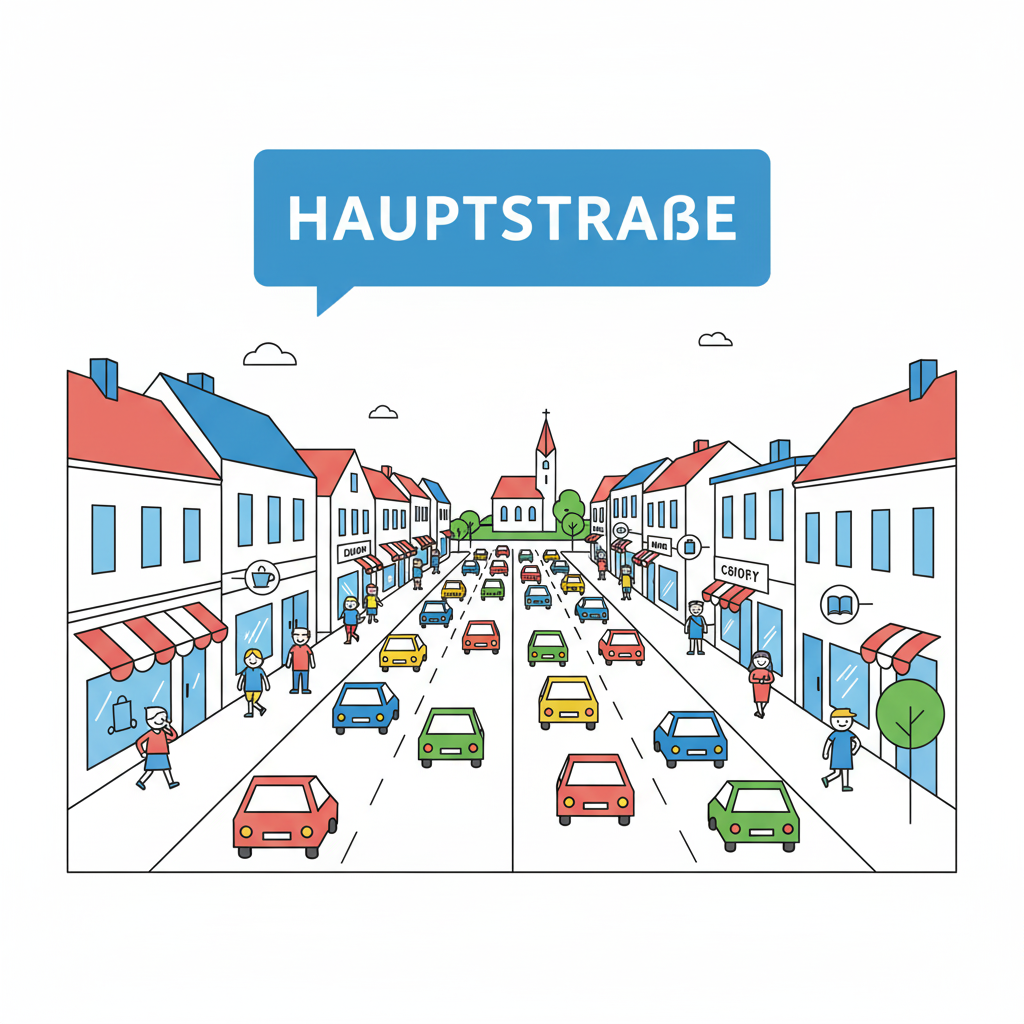
im Stress
in dem Stress
ich bin im Stress (stressed)
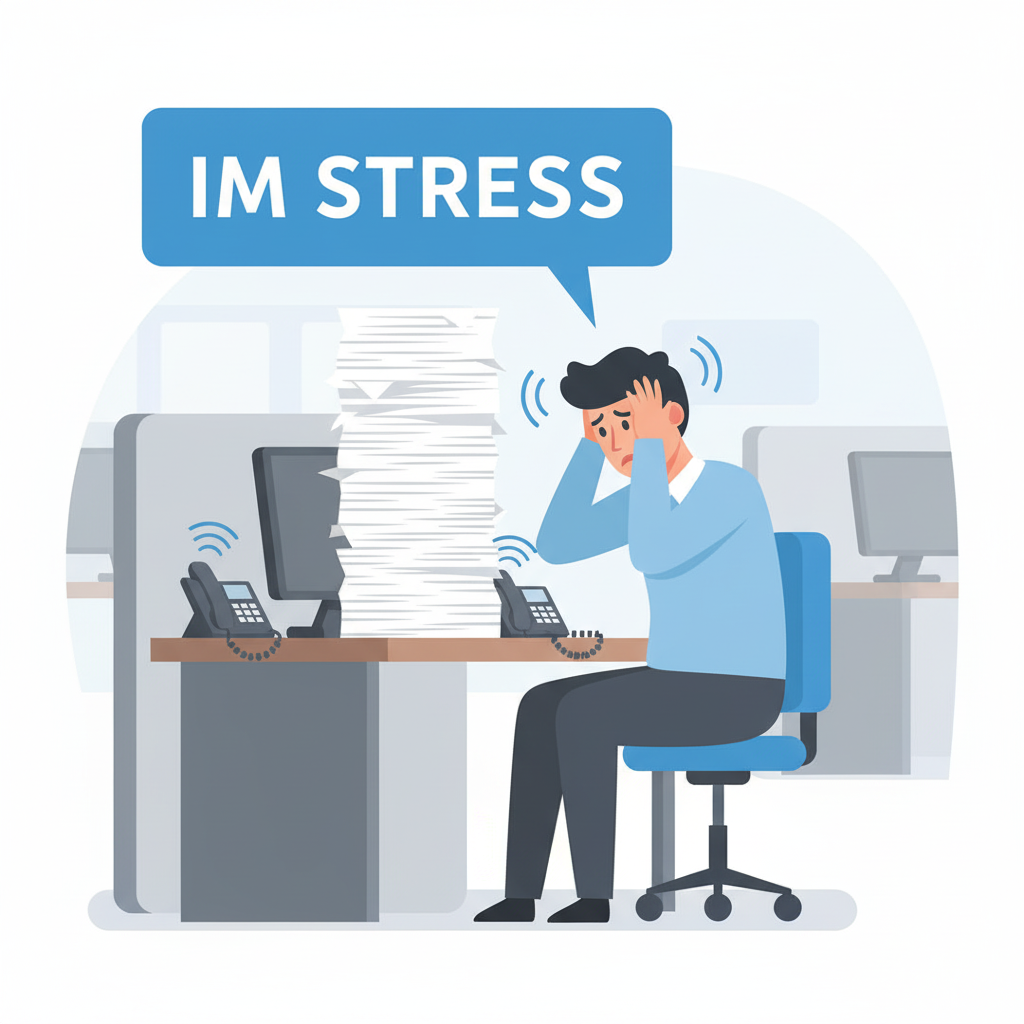
gut drauf
Ich bin gut drauf
Sie ist nicht so gut drauf
Er ist super drauf aber sie ist schlecht drauf
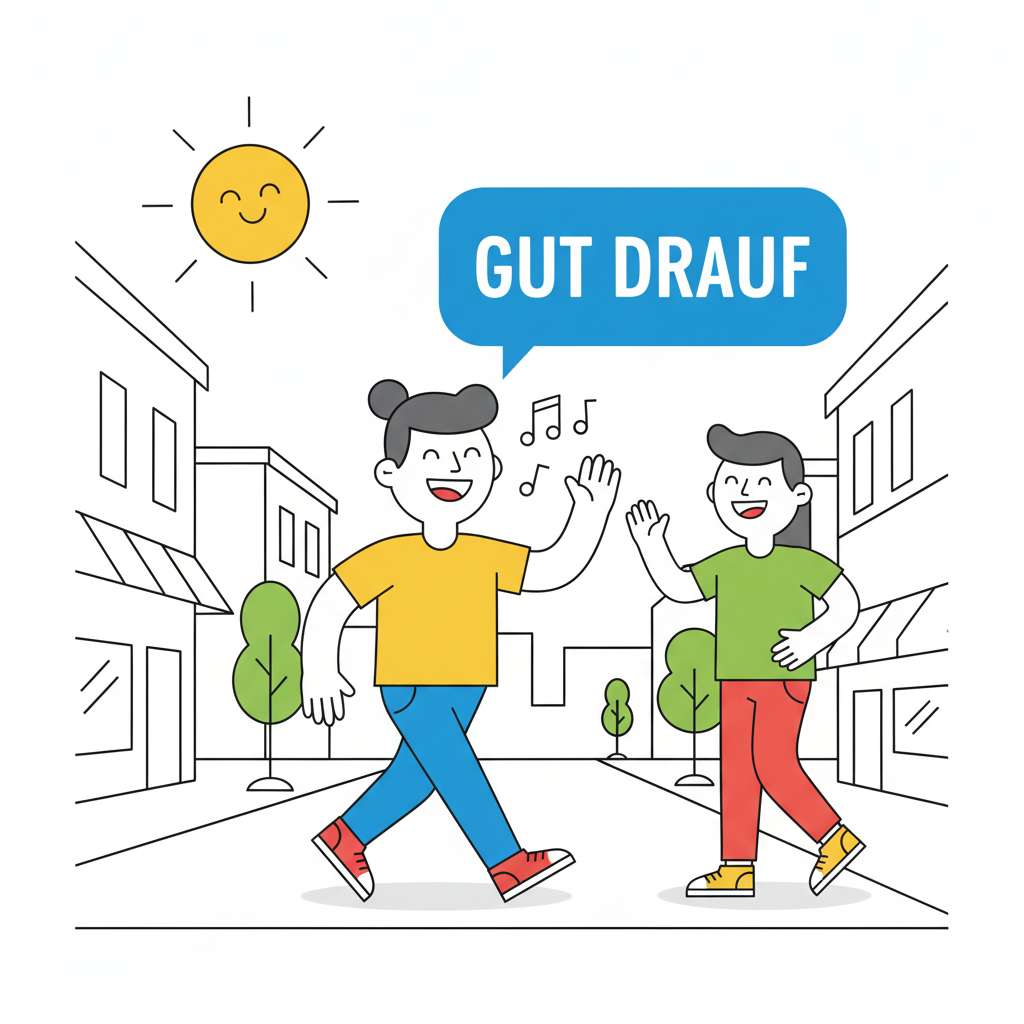
der Erzieher, die Erzieherin
Child Educator
der Ingenieur, die Ingenieurin
Engineer
der Krankenpfleger, die Krankenpflegerin
Nurse
die Arbeit
work
beruflich
Was machen Sie beruflich?
als [beruf]
Elisa sucht Arbeit als Ingenieurin
arbeitslos
Adjektiv
Arbeitslose(noun)
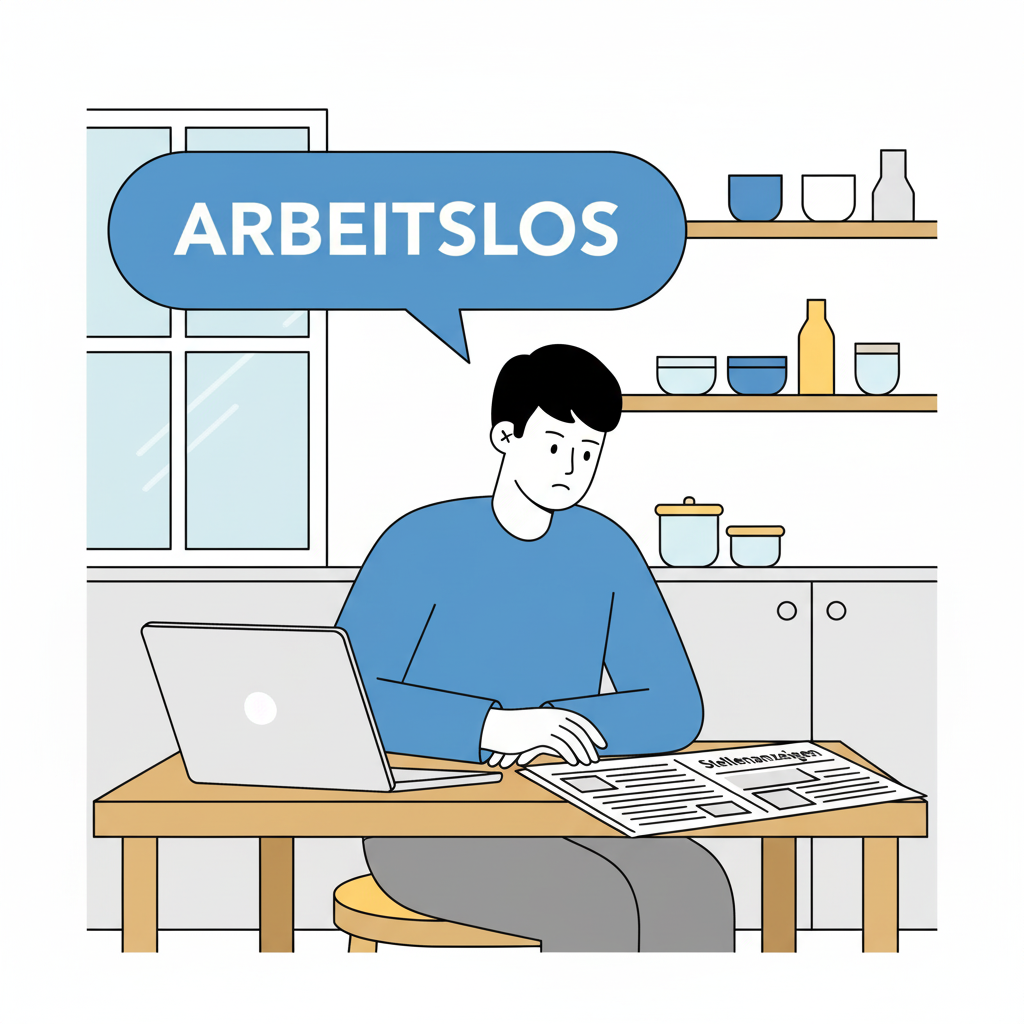
der Verkäufer
Ich bin Verkäuferin. Ich verkaufe Produkte.
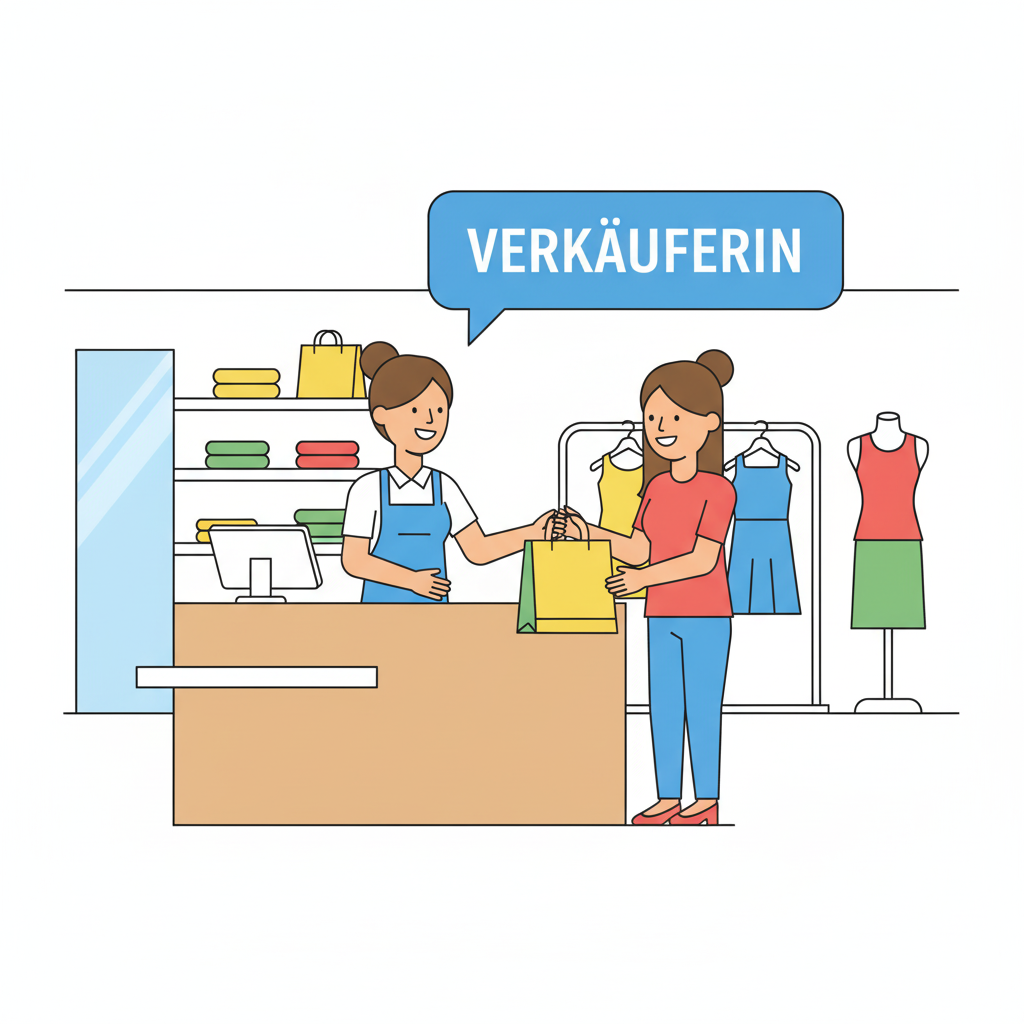
Unterrichten, Servieren, Pflegen
Lehrer, Kellner, Pfleger
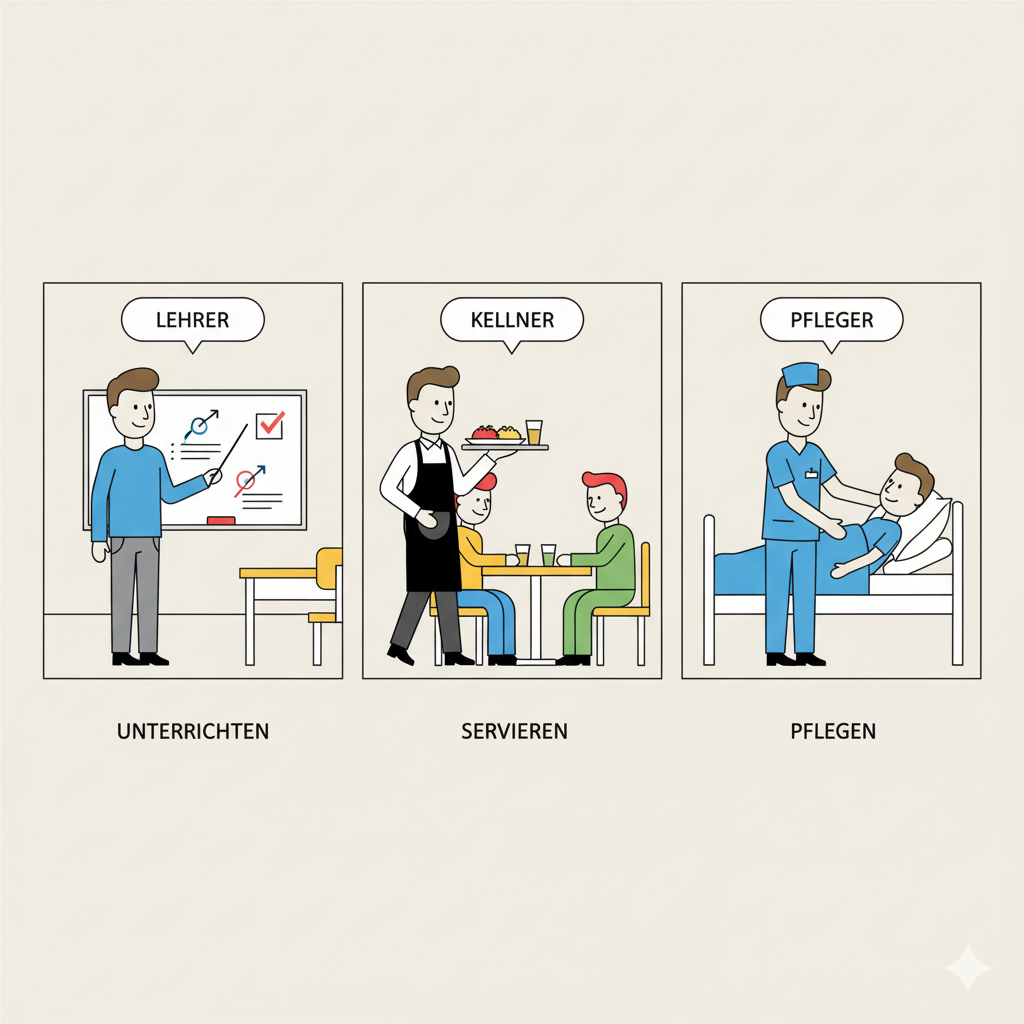
das da
Das Cafe hier ist günstig, aber das da ist teuer.
günstig - good value
billig - cheap
teuer - expensive
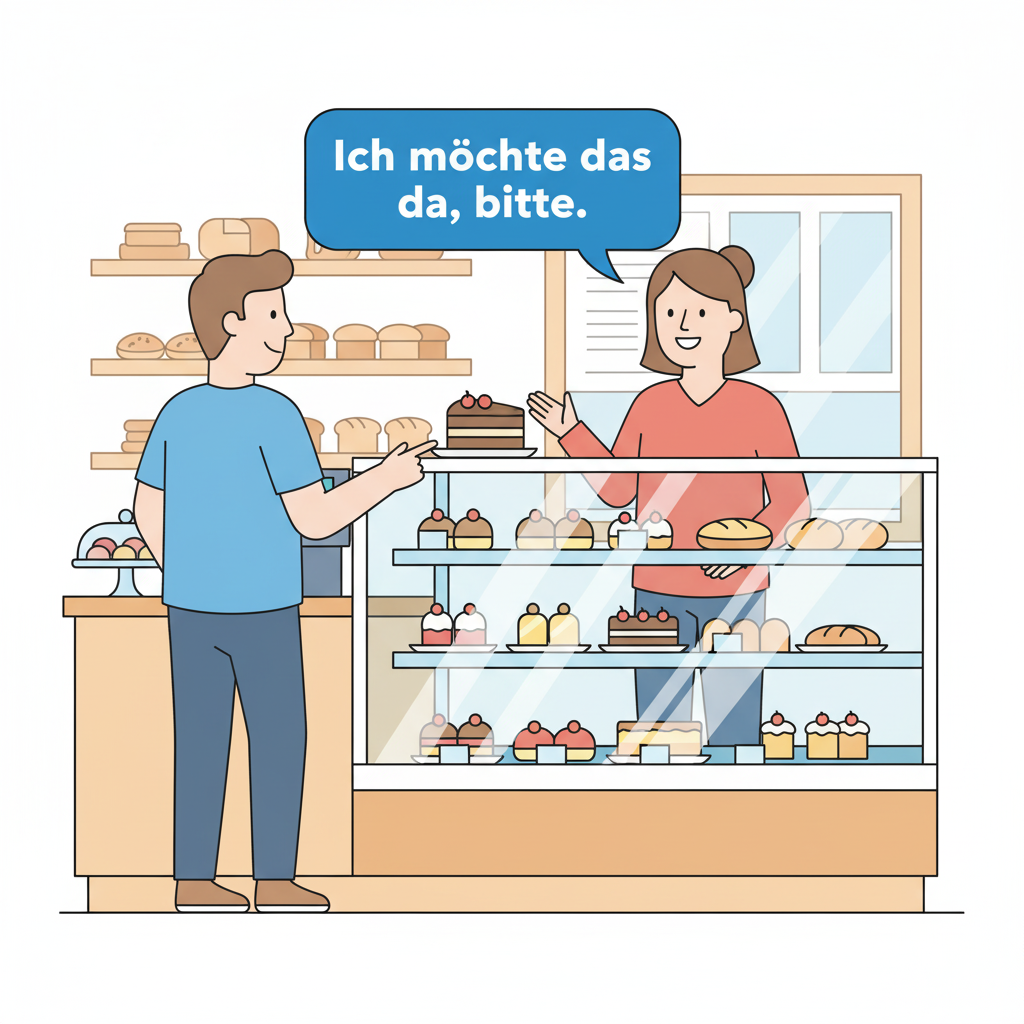
das Hipster-Café, das Oma-Café
neumodisch, altmodisch
hip (imported from English) - fashionable/ trendy
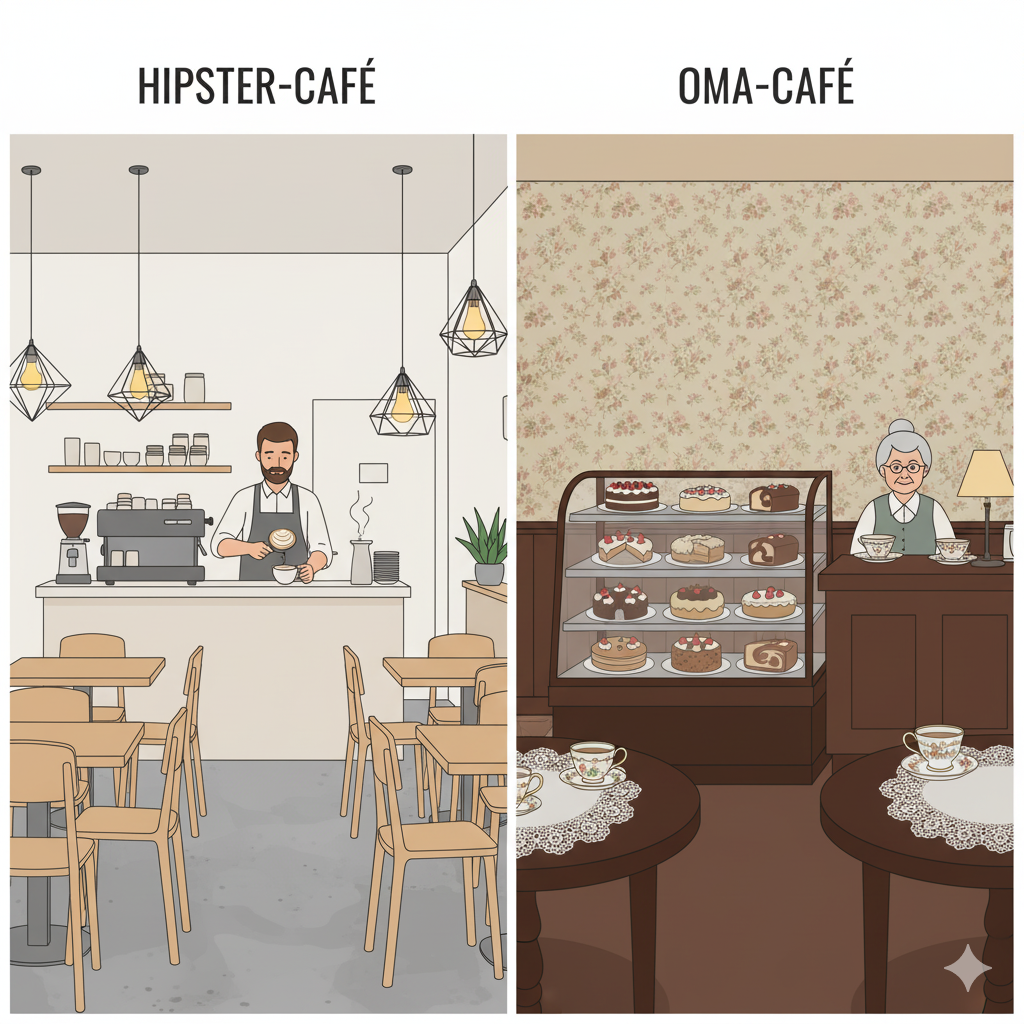
wenige
Genteil: viele
wenige Äpfel, wenig Geld/Zeit
Nominative: Wenige Menschen verstehen das. (Few people understand that.)
Accusative: Ich kenne wenige Menschen hier. (I know few people here.)
Dative: Er spricht mit wenigen Menschen. (He speaks with few people.)
Genitive: Die Meinung weniger Menschen ist unwichtig. (The opinion of few people is unimportant.)
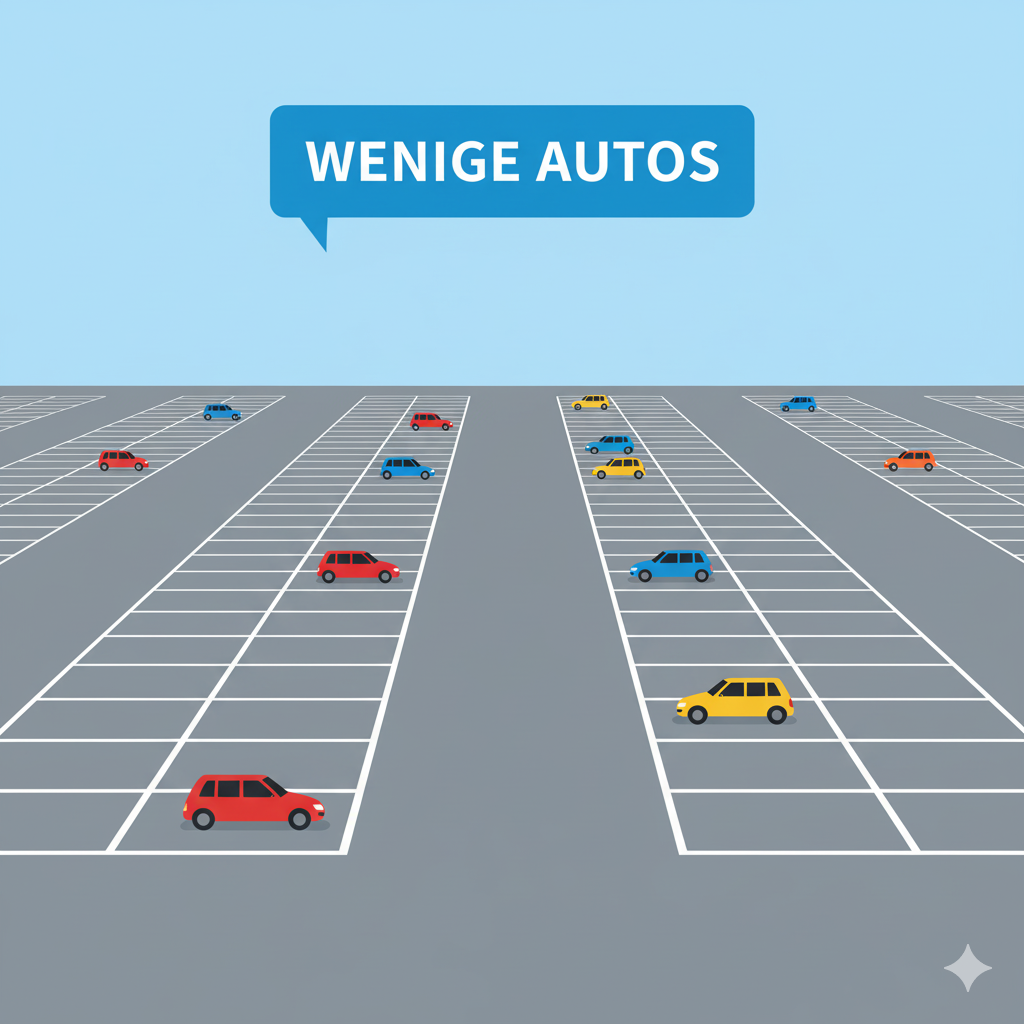
das Kaffeehaus, der Kaffeeklatsch
die Kaffeehäuser
Kaffeeklatsch = gossip with coffeee
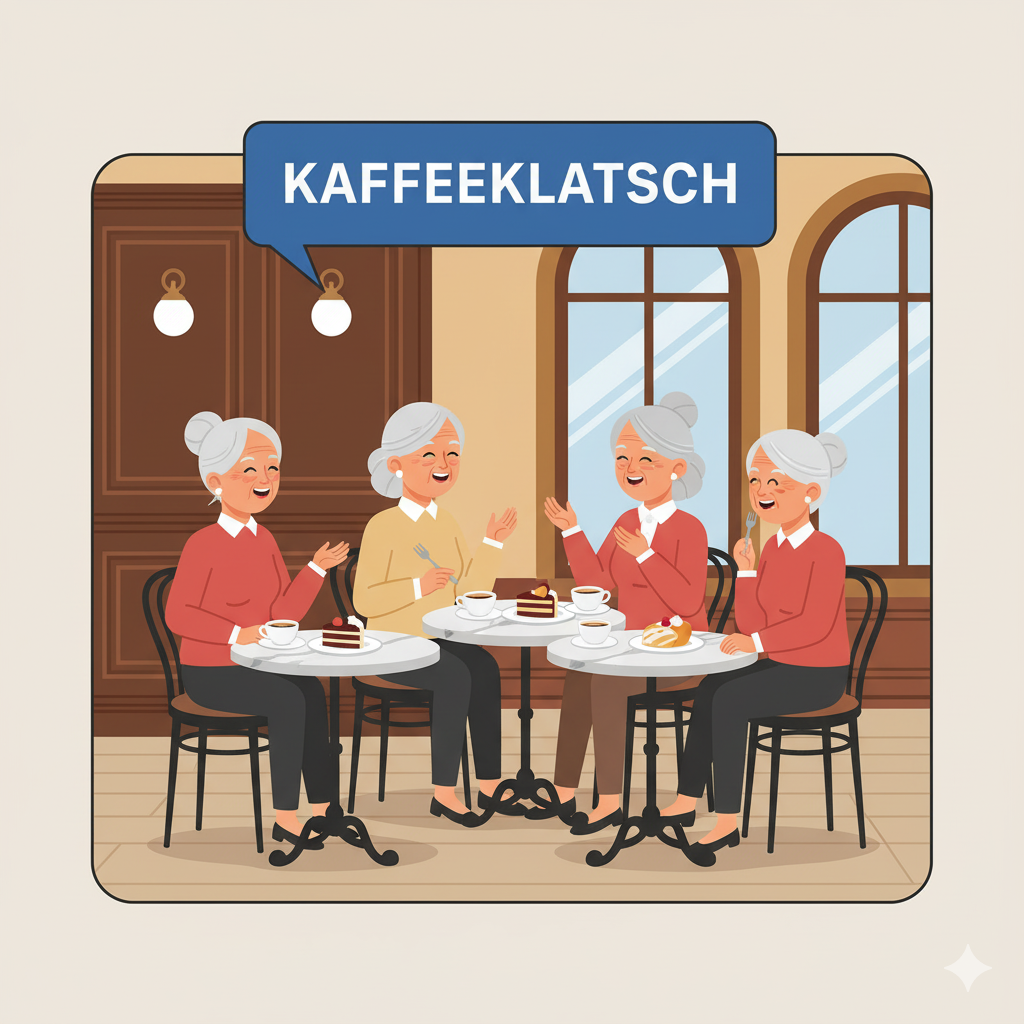
zum Mitnehmen, bitte
Said when ordering food or drinks that you do not want to consume in the restaurant or café.
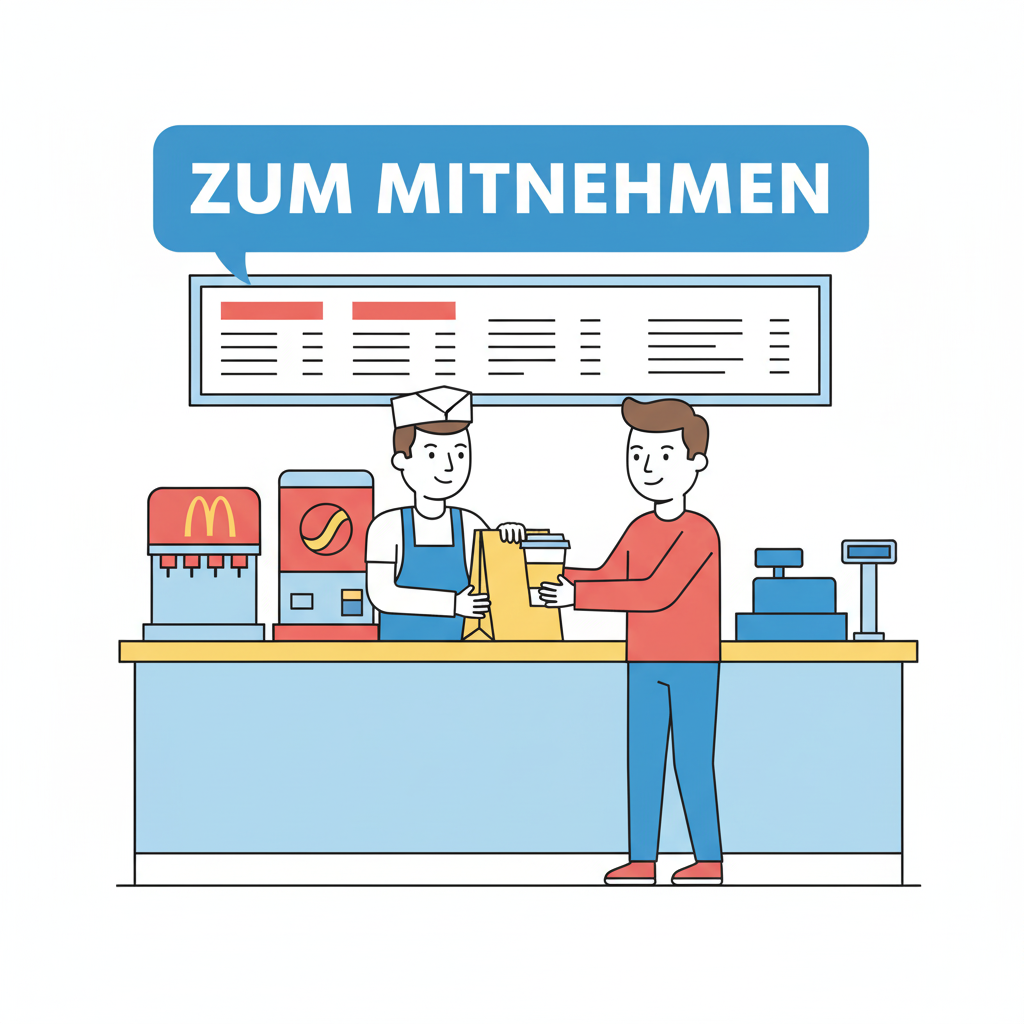
stimmt so
“It’s correct like this”
actual : Keep the change.
Machen sie ___ Euro.
Meaning: Make it ___ euros.
Usage: This is the other common way to tip. You state a total amount (bill + tip) that you want to pay. The waiter will then calculate the change based on this new total. Example: The bill is 8.50€. You say, "Machen Sie 9 Euro." You give them a 10€ note, and you get 1€ back.
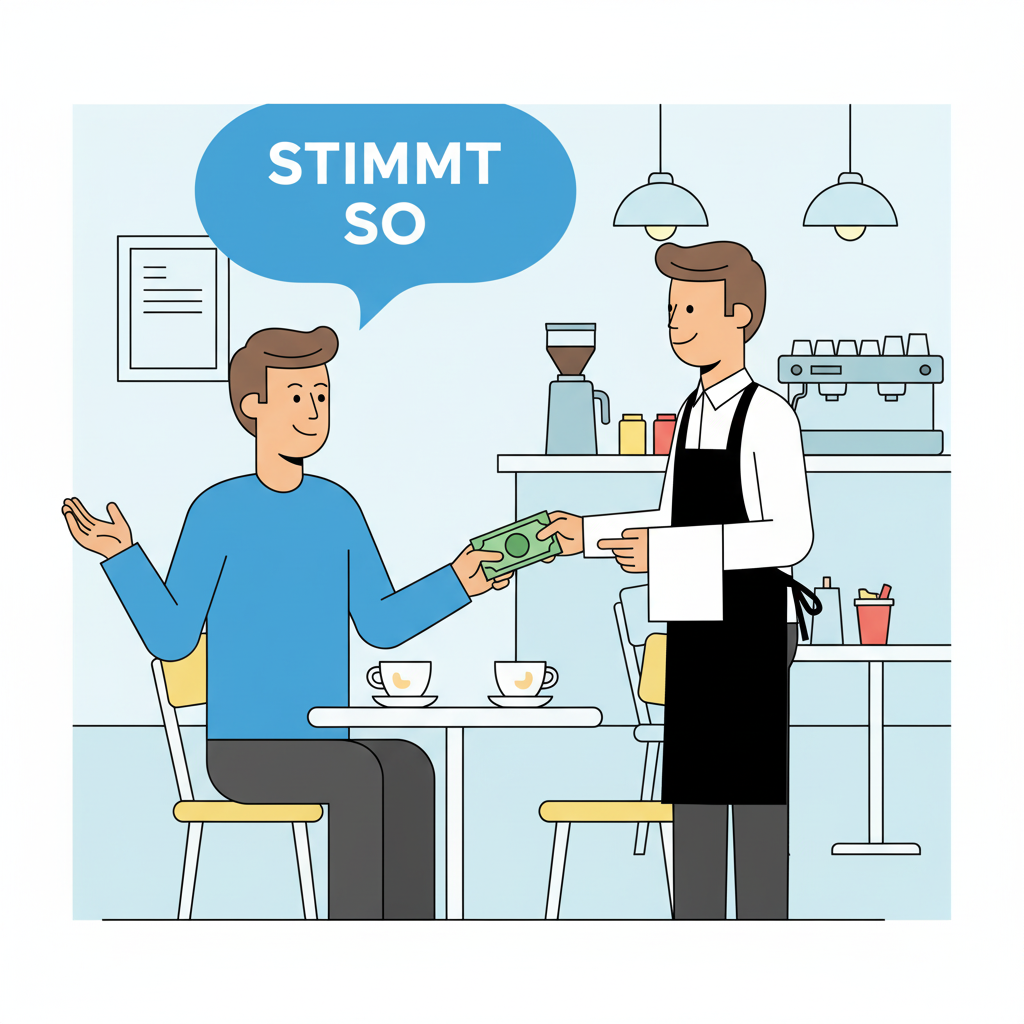
Mahlzeit!
Enjoy!
Pass auf dich auf
aufpassen = to pay attention, to watch out, to look after. It is a separable verb.
Pass auf = The informal command ("du") form of "aufpassen". The prefix auf- is separated.
auf dich = on you / for you. The preposition auf triggers the accusative case, so "du" becomes "dich".
Literally: "Watch out on yourself." -> Take care of yourself.
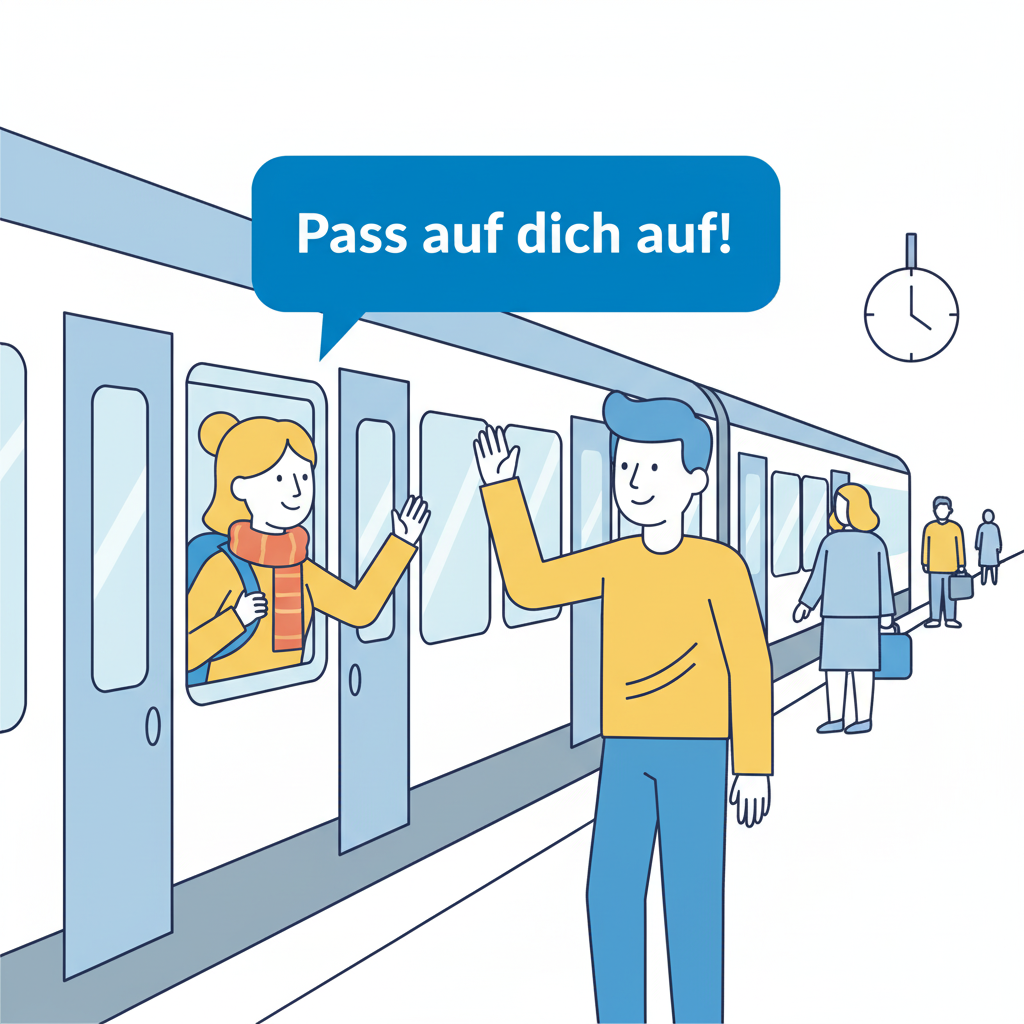
die Fleischerei / die Metzgerei
das Fleisch (the meat). "-erei" denotes a place of business where something is made or sold. (Like Bäckerei from backen).
Metzger - butcher
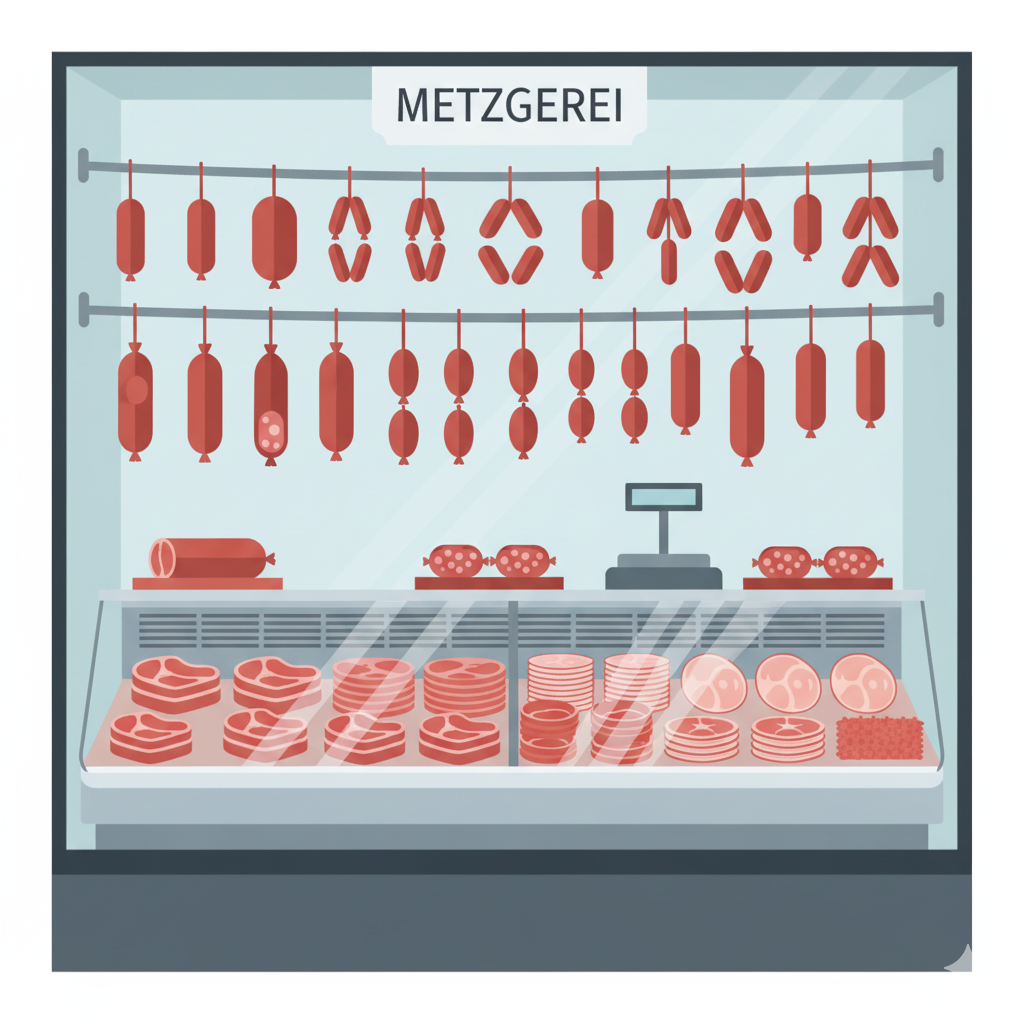
von Beruf
Was sind Sie von Beruf?
Was bist du von Beruf?
Was ist ihr Beruf?
A: "Guten Tag. Mein Name ist Schmidt. Was sind Sie von Beruf?"
B: "Guten Tag. Ich bin Verkäuferin von Beruf."
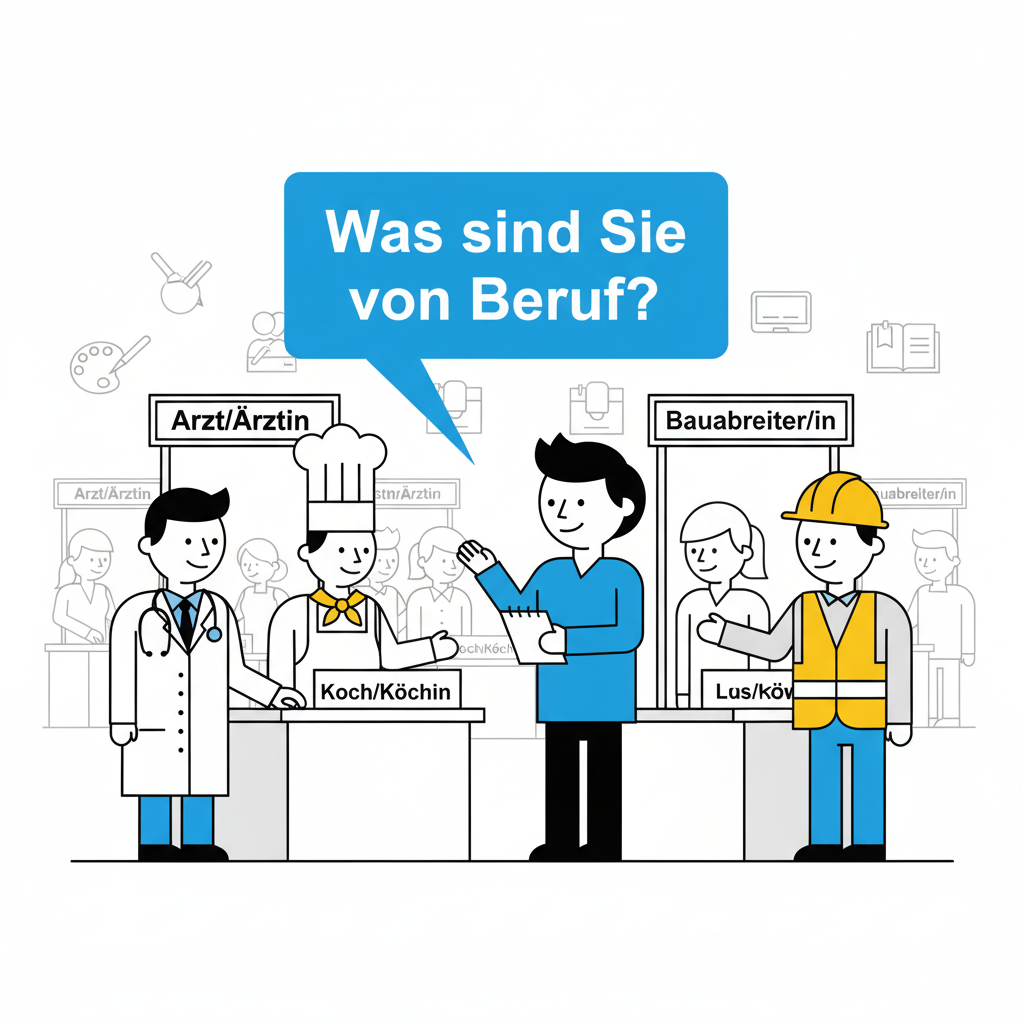
der Enkel, die Enkelin, die Enkelkinder
Die Großeltern sind stolz auf ihre Enkelkinder.
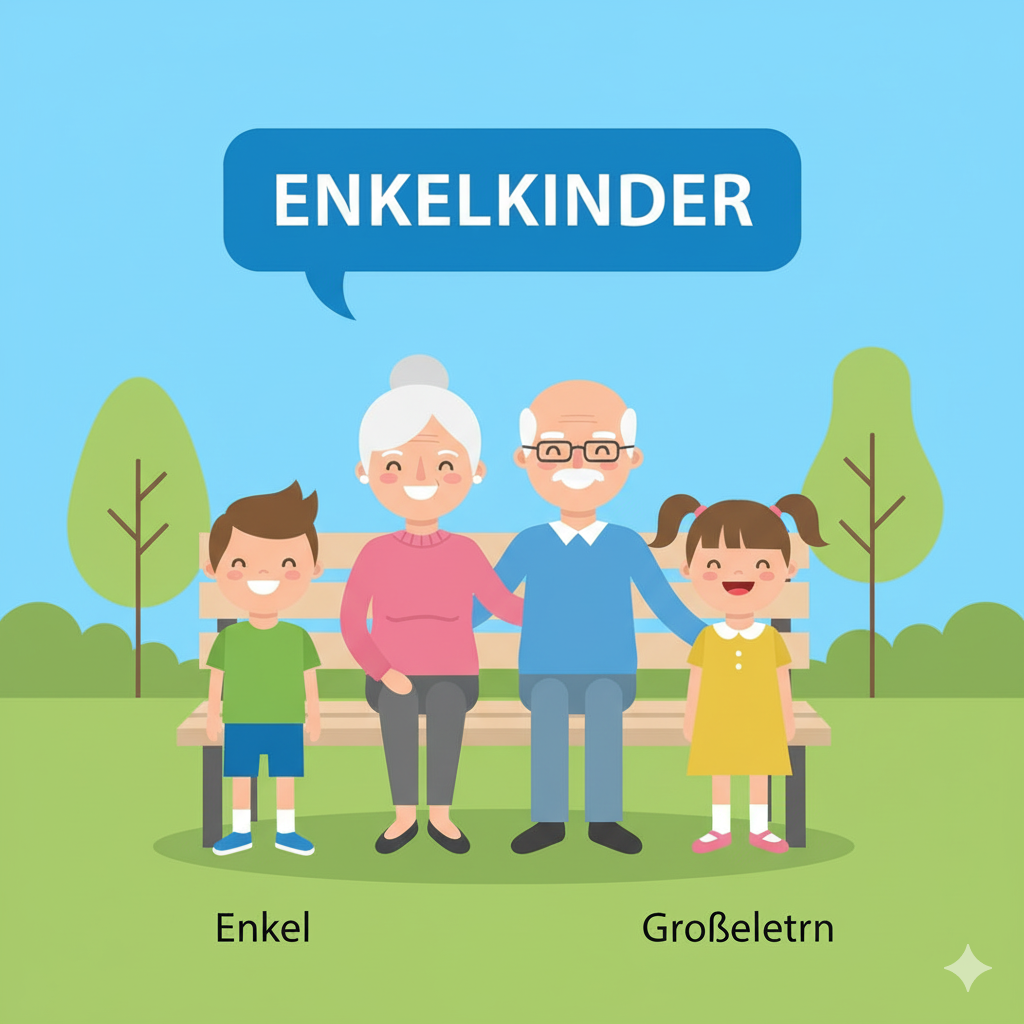
Der Cousin, die Cousine, der Fotograf, die Fotografin, studiert
Mein Cousin ist kein Fotograf von Beruf, aber er studiert Fotografie an der Universität.
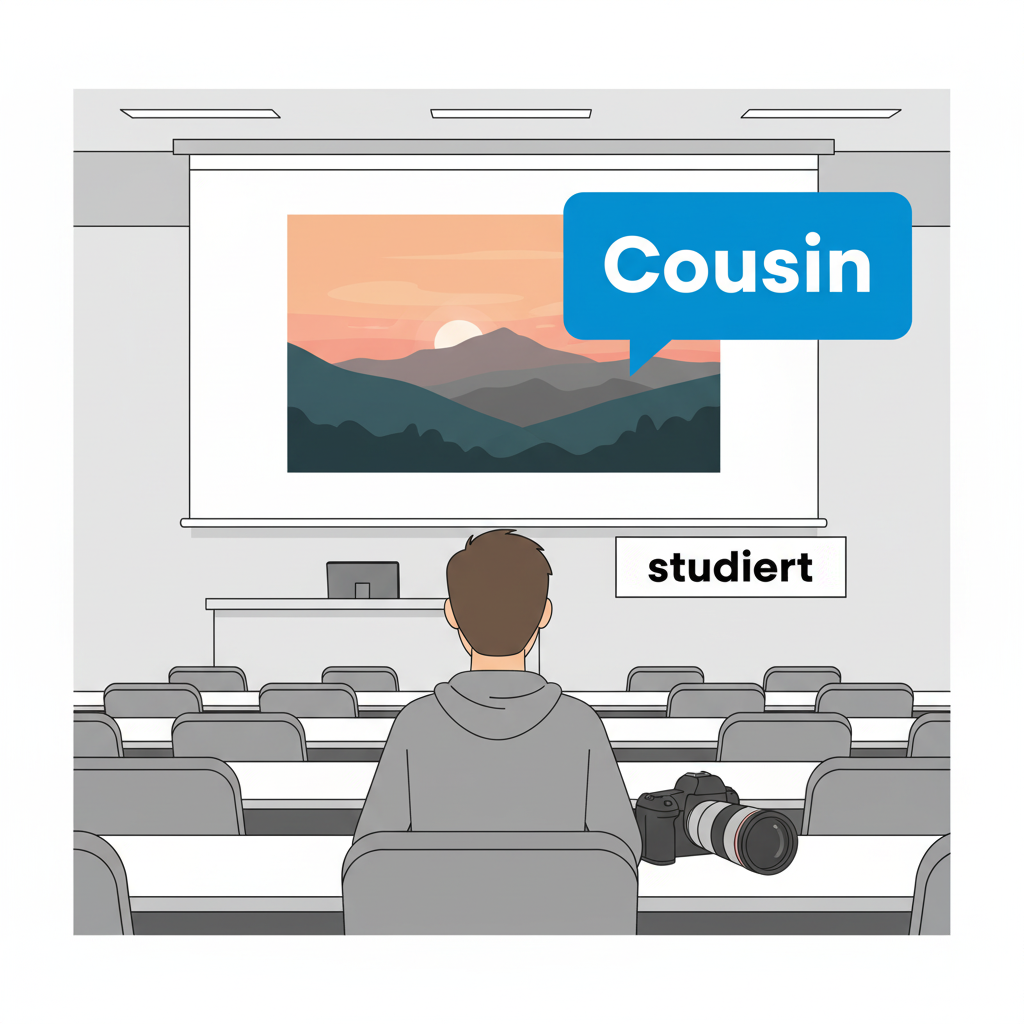
ein Freund vs mein Freund
Ein Freund = just friends
Mein Freund = Boyfriend
wichtig
Das Meeting ist wichtig.
Das ist eine wichtige Information!
sympathisch
Person A: Kennst du den neuen Nachbarn? (Do you know the new neighbor?)
Person B: Ja, Herr Weber. Er ist sehr sympathisch, finde ich. (Yes, Mr. Weber. I find him very likable.)
Tom’s freundin ist unsympathisch, oder?
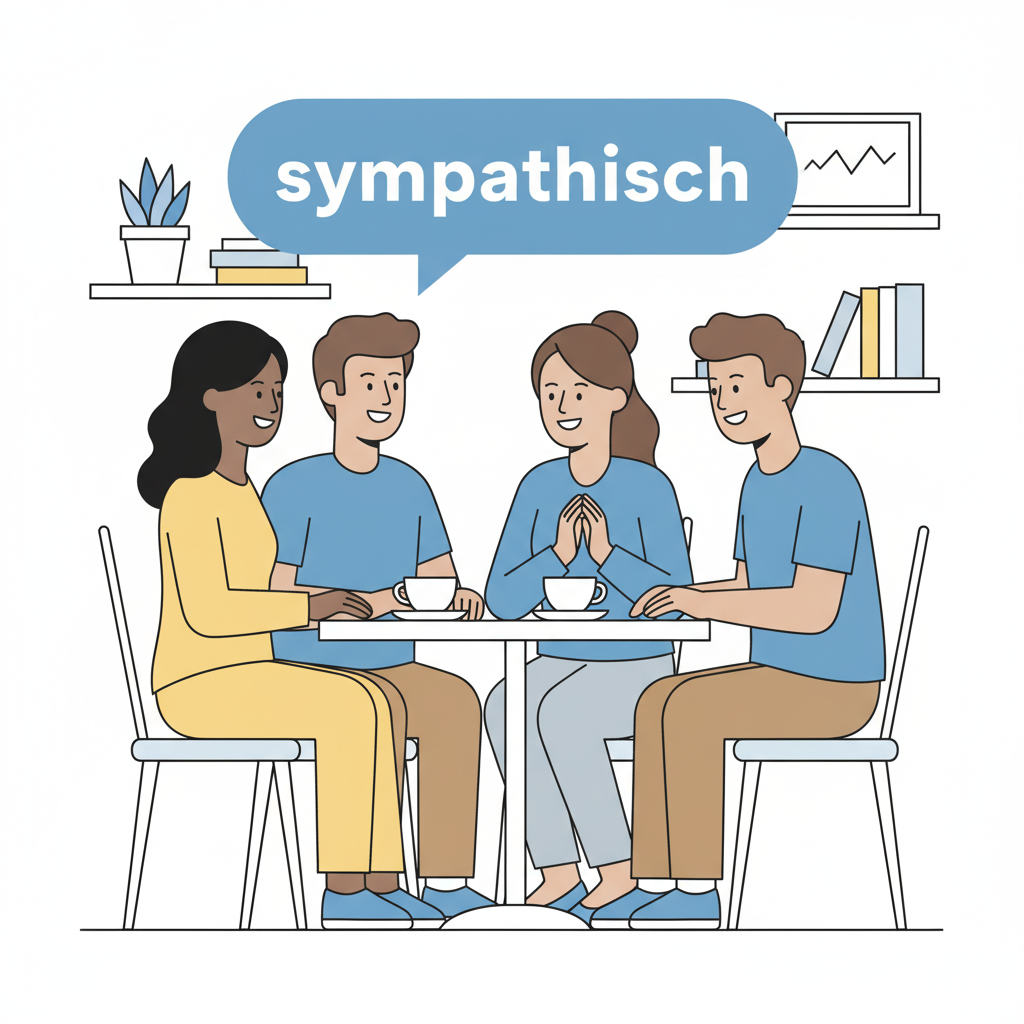
Nervig, die Nervensäge
Person A: Was ist los? Du siehst gestresst aus. (What's wrong? You look stressed.)
Person B: Ach, der Drucker funktioniert schon wieder nicht. Das ist so nervig! (Ugh, the printer isn't working again. It's so annoying!)
Parent: Räumst du bitte dein Zimmer auf? (Will you please clean up your room?)
Child: Später... (Later...)
Parent (playfully): Du kleine Nervensäge! Mach es bitte jetzt. (You little pest! Please do it now.)
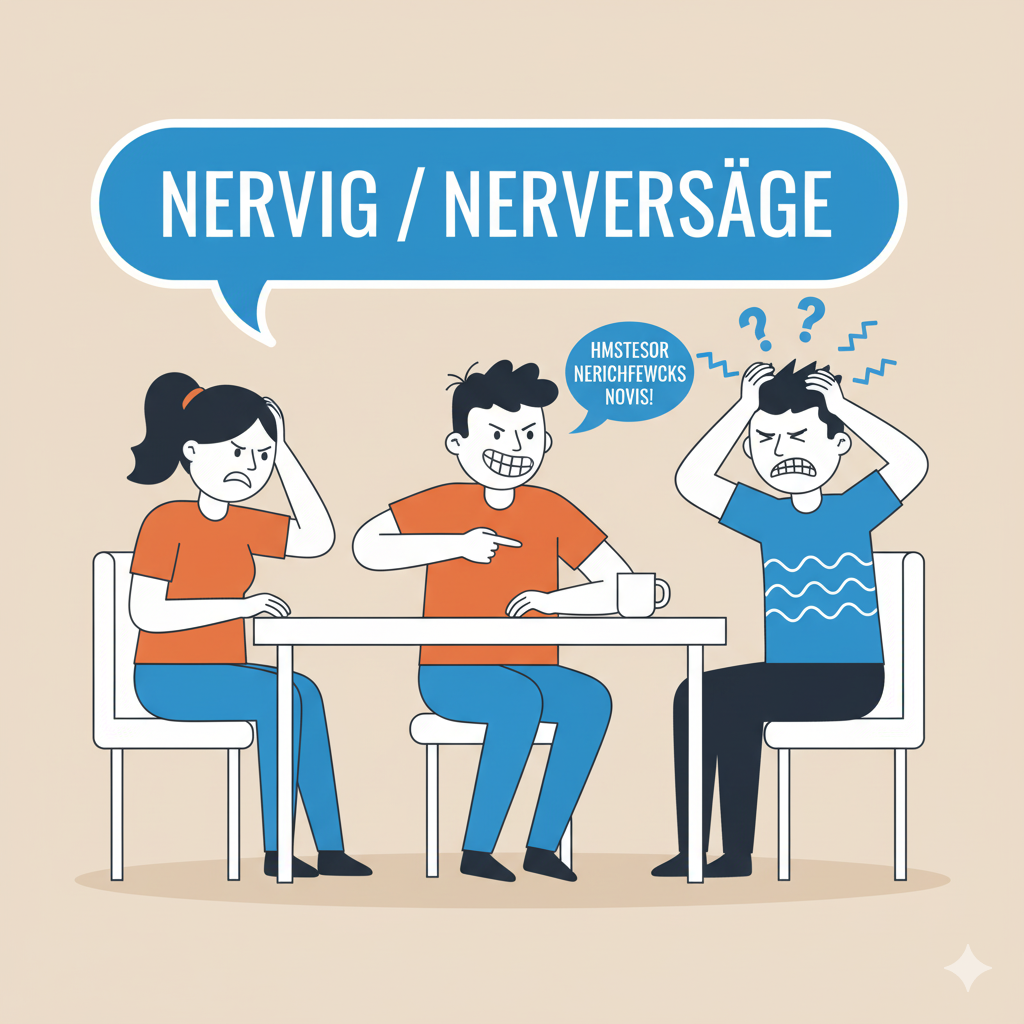
blöd
Anna: Oh nein! Ich habe mein Handy zu Hause vergessen. (Oh no! I forgot my phone at home.)
Felix: Das ist blöd. Wir brauchen es für die Tickets. (That's annoying. We need it for the tickets.)
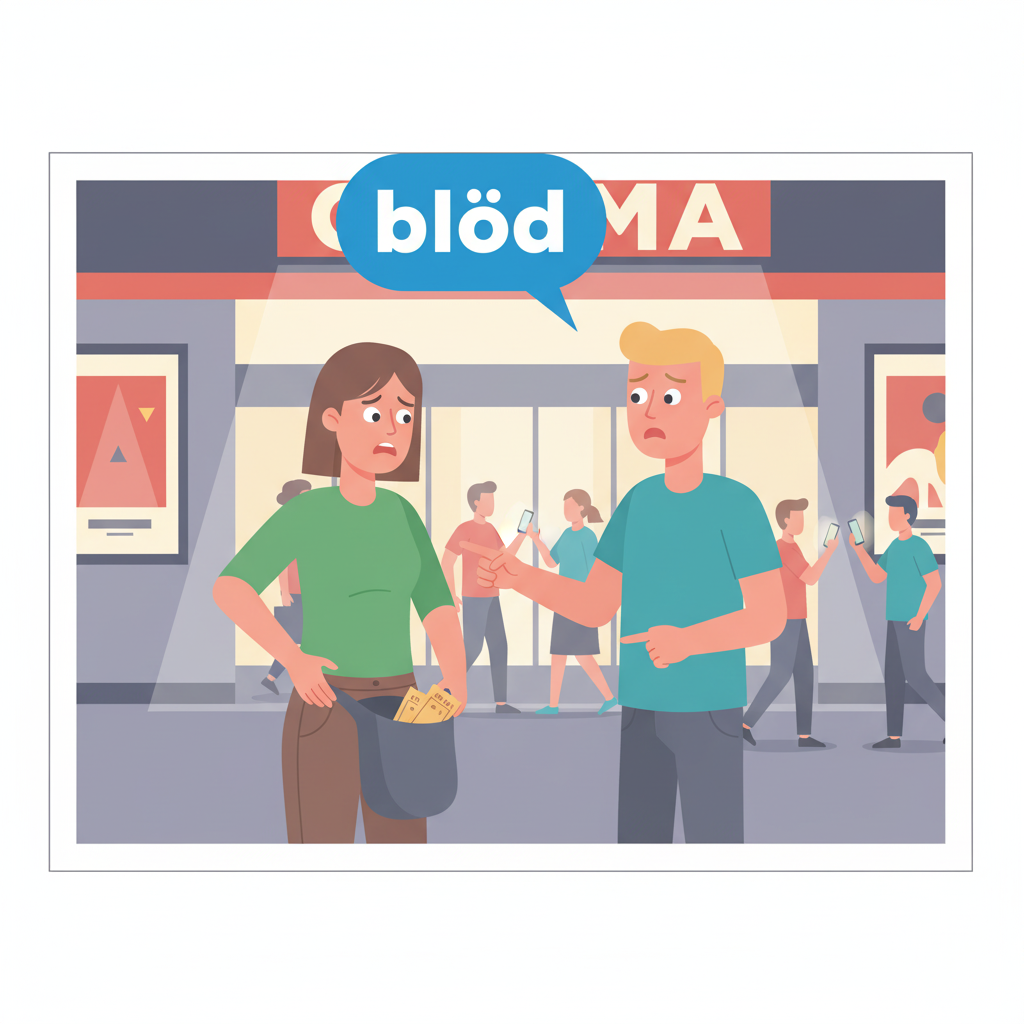
relativ, langweilig, arrogant
Julia: Wie fandest du den Vortrag? (How did you find the lecture?)
Marko: Puh, ehrlich gesagt war er relativ langweilig. (Phew, honestly it was relatively boring.)
Julia: Ja, und der Redner wirkte auch ziemlich arrogant, fand ich. (Yes, and the speaker also seemed quite arrogant, I thought.)
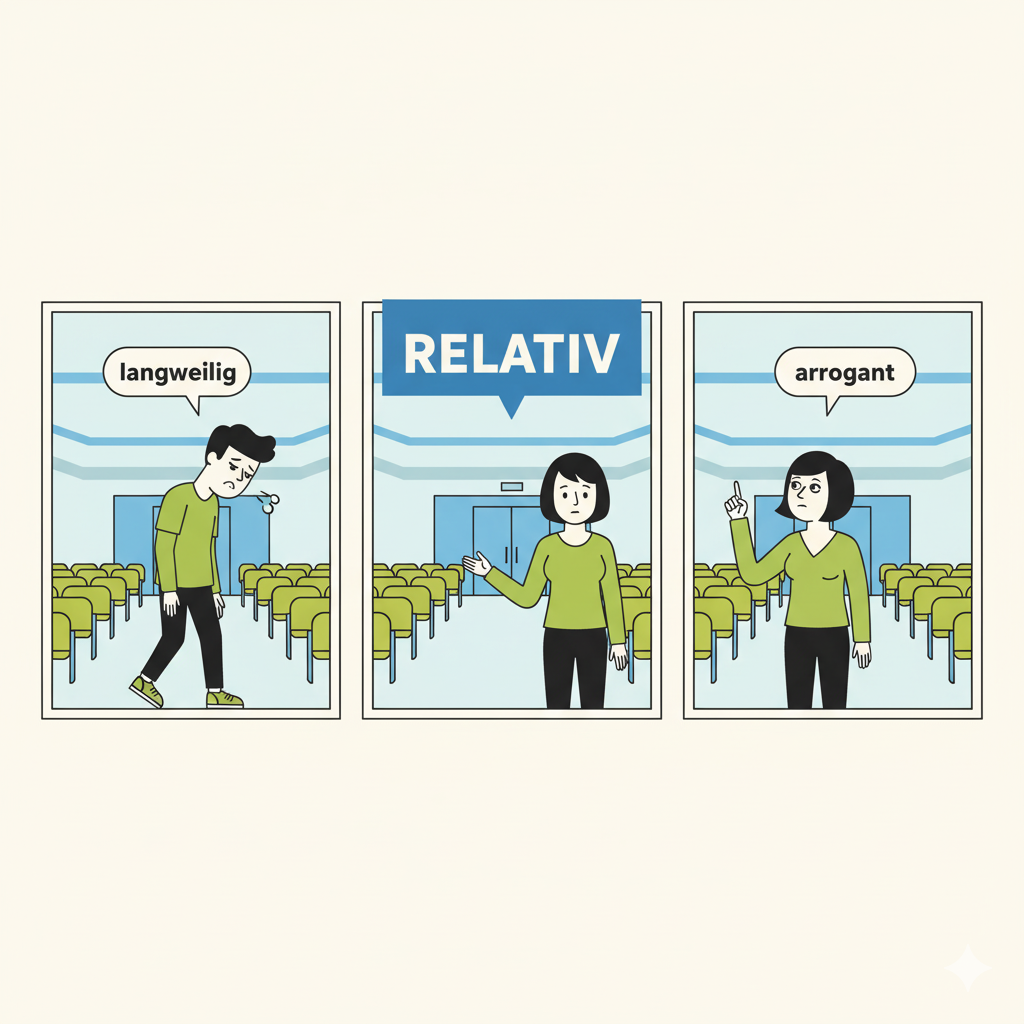
die Labertasche
Anna: Hast du gestern mit Paul telefoniert? (Did you talk to Paul on the phone yesterday?)
Ben: Ja, eine ganze Stunde! Er ist so eine Labertasche, ich konnte fast nichts sagen. (Yes, for a whole hour! He's such a chatterbox, I could barely say anything.)
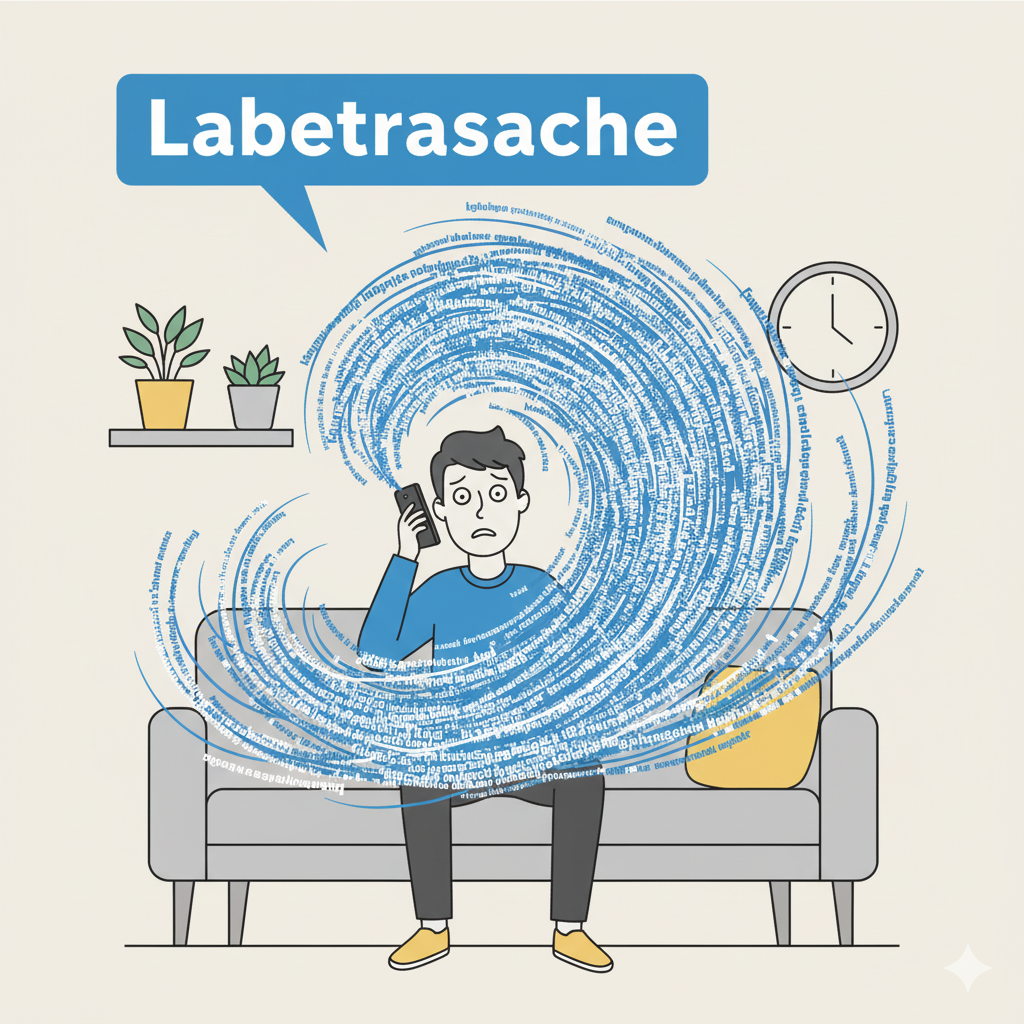
die Spaßbremse
der Spaß (the fun, joy)
die Bremse (the brake)
Lisa: Komm, lass uns im Regen tanzen! (Come on, let's dance in the rain!)
Tom: Bist du verrückt? Wir werden krank! (Are you crazy? We'll get sick!)
Lisa: Ach, sei doch keine Spaßbremse! (Oh, don't be such a killjoy!)
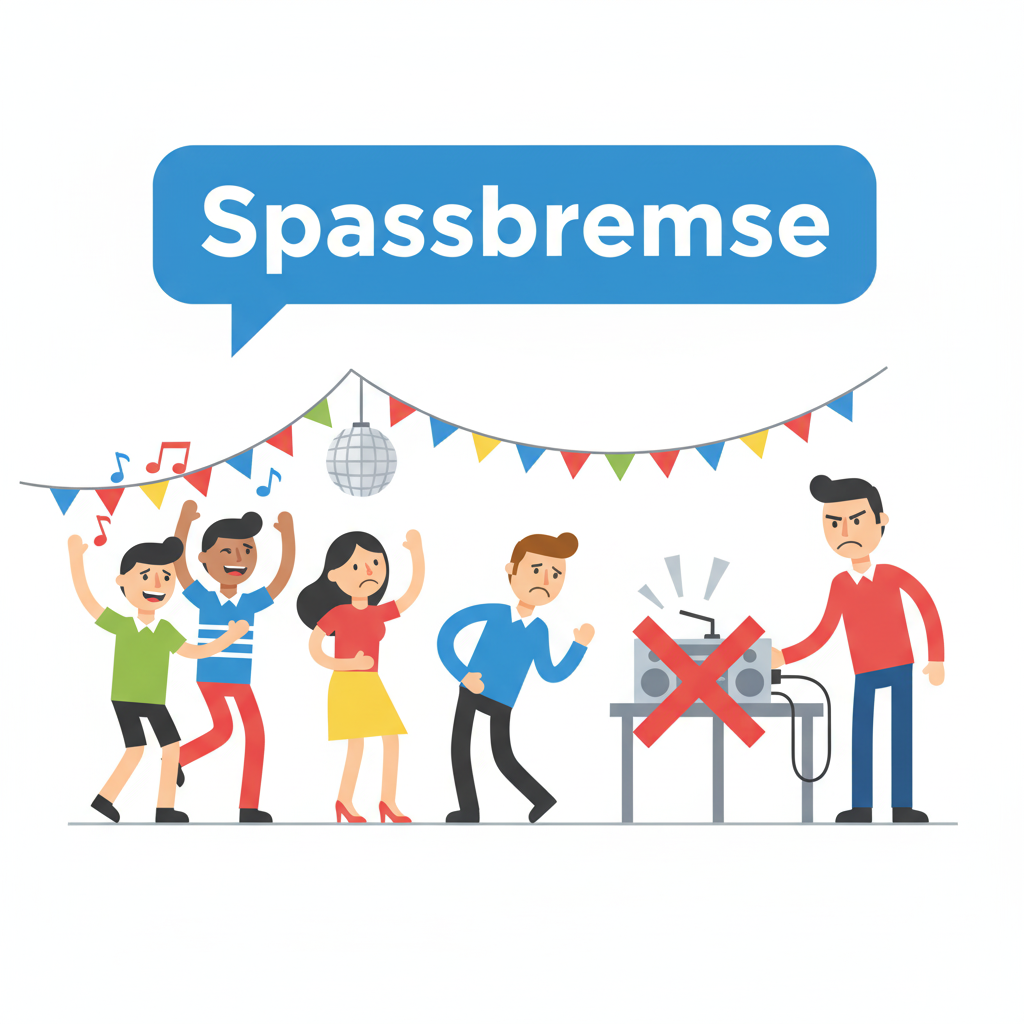
der Klugscheißer
Stefan: Das Auto fährt mit 100 km/h. (The car is going 100 km/h.)
Martin: Eigentlich sind es 98,7 km/h, wenn man es genau nimmt. (Actually, it's 98.7 km/h, if you want to be precise.)
Stefan: Oh Mann, sei nicht immer so ein Klugscheißer! (Oh man, don't always be such a know-it-all!)
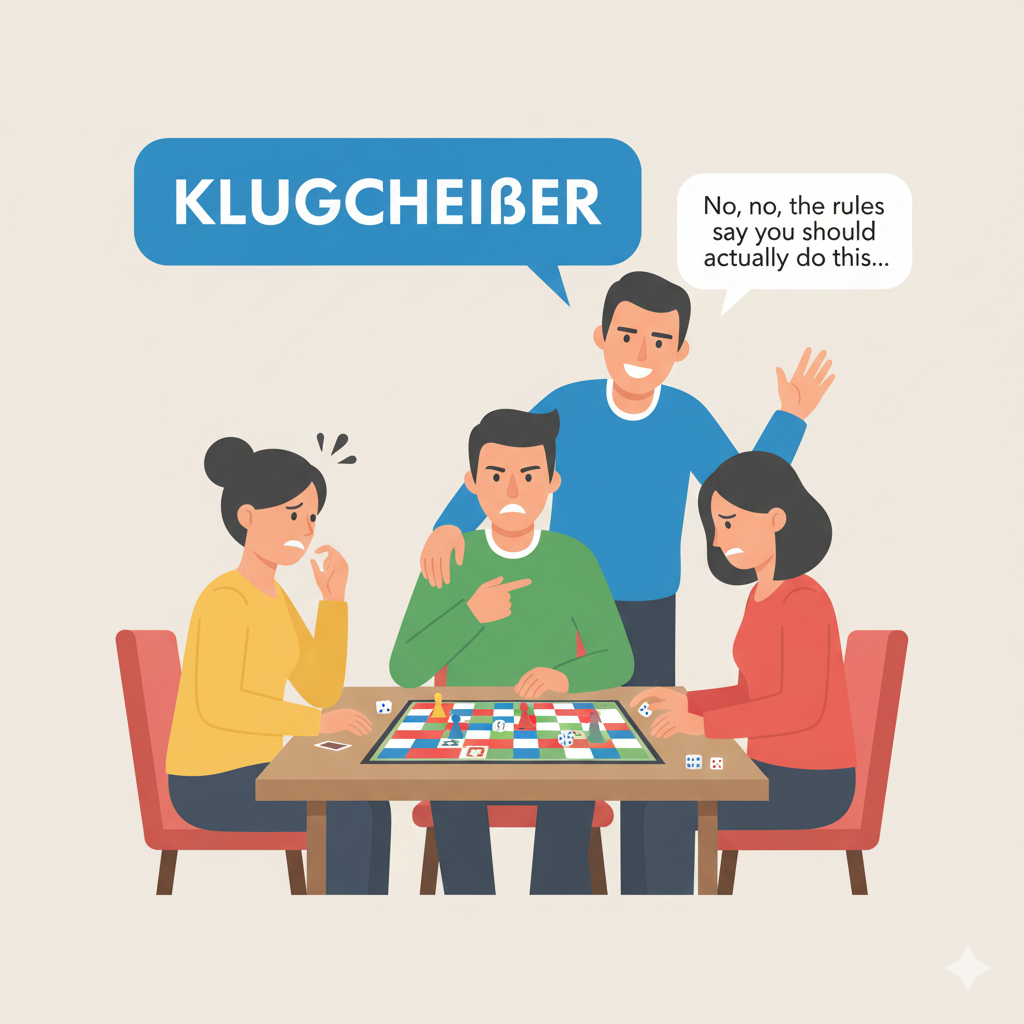
der Korinthenkacker
Chef: Der Bericht ist gut, aber hier auf Seite 42 ist ein Komma falsch gesetzt. (The report is good, but here on page 42, a comma is placed incorrectly.)
Mitarbeiter (Muttering to another colleague): Wegen einem Komma? Er ist so ein Korinthenkacker. (Because of one comma? He is such a nitpicker.)
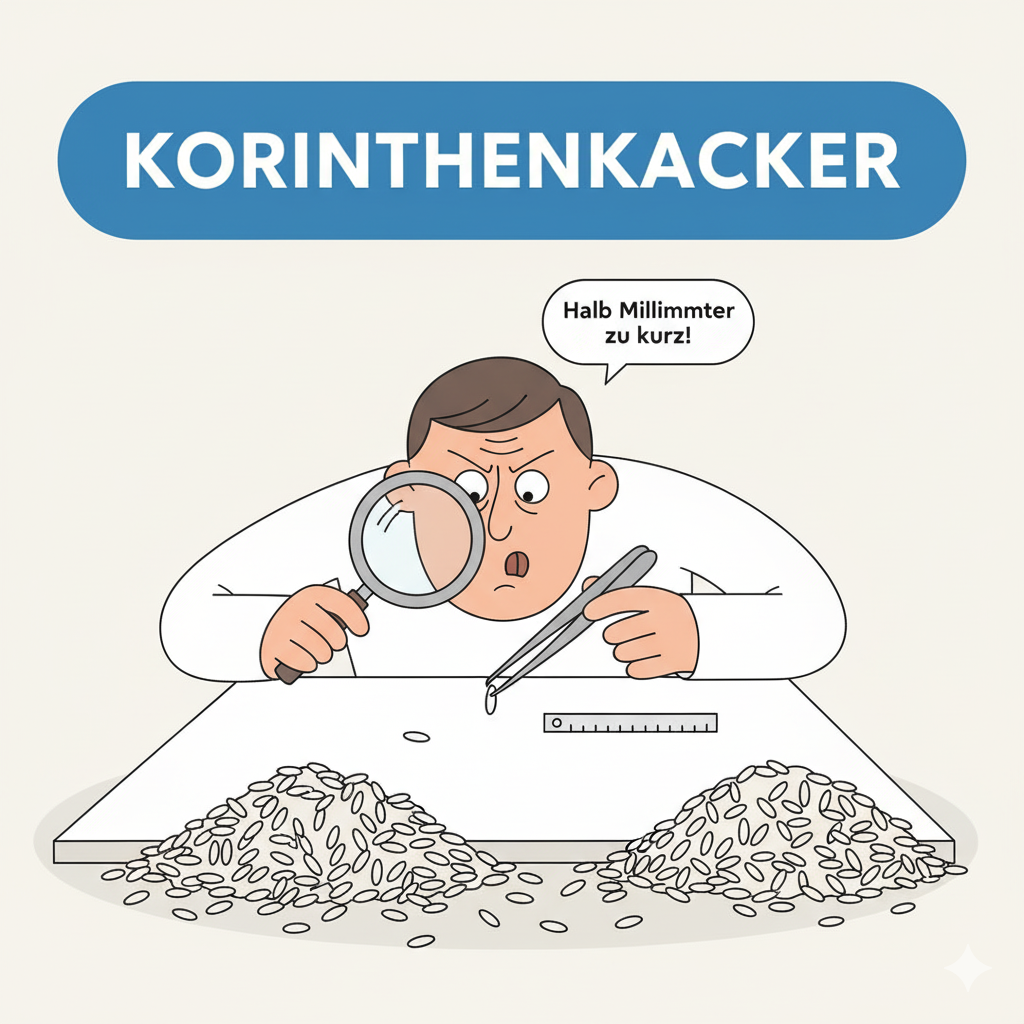
Das ist mir Wurst!
a sausage has two ends that look identical ("Wurstzipfel"), so it doesn't matter which end you start with—it's "all the same.
Franka: Wollen wir heute Abend Pizza oder Pasta essen? (Do we want to eat pizza or pasta tonight?)
Heiko: Puh, ich habe auf beides Appetit. Das ist mir Wurst! Such du etwas aus. (Phew, I have an appetite for both. It's all the same to me! You pick something.)
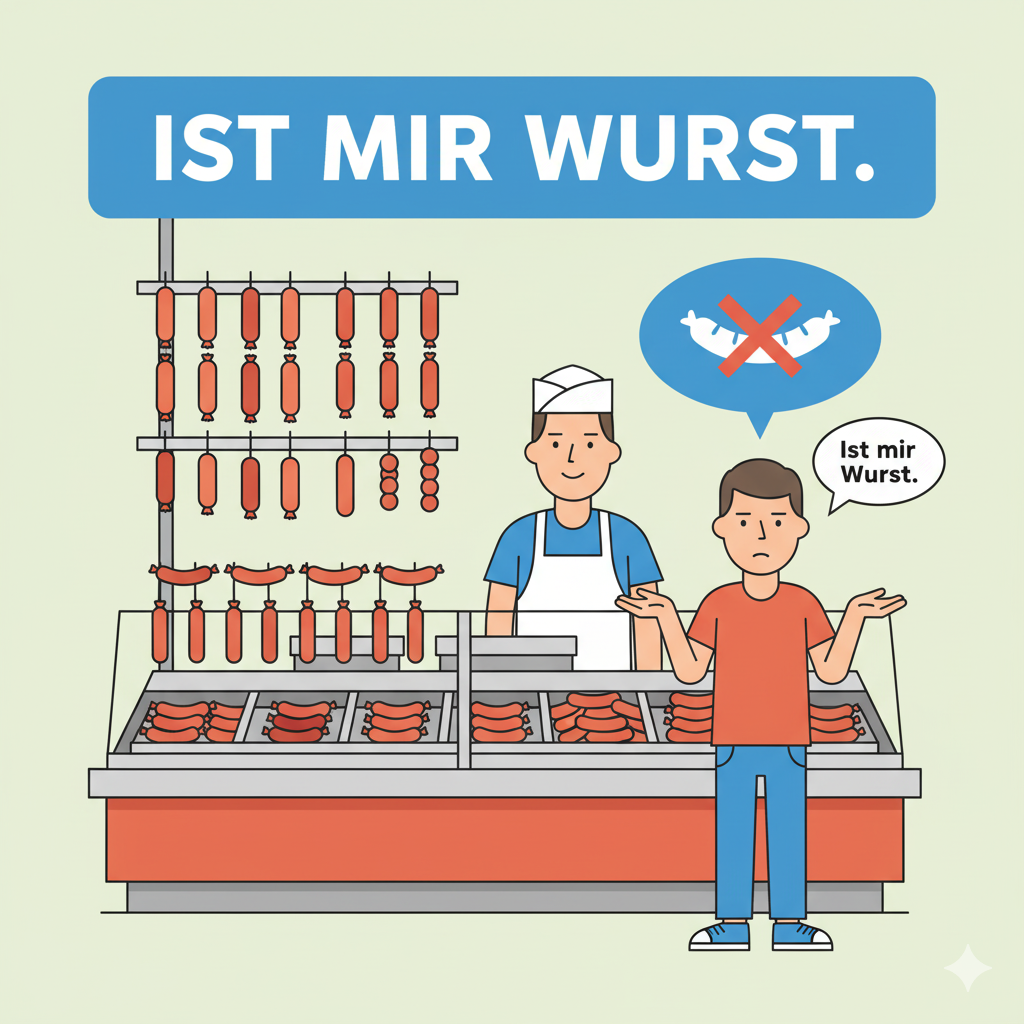
eine Extrawurst
This idiom comes from old butcher shops (Metzgereien). A butcher might give a favored customer or a child a small, extra sausage as a special treat or a free sample. This act of getting something special that others didn't evolved into a metaphor for any kind of preferential treatment.
Teamleiter: Das Meeting ist für alle morgen um 9 Uhr. (Team Lead: The meeting is for everyone tomorrow at 9 AM.)
Mitarbeiter: Kann ich vielleicht um 10 Uhr kommen? Ich schlafe gern lange. (Employee: Can I maybe come at 10 AM? I like to sleep in.)
Teamleiter (to another colleague): Unglaublich. Er will immer eine Extrawurst. (Team Lead (to another colleague): Unbelievable. He always wants special treatment.)
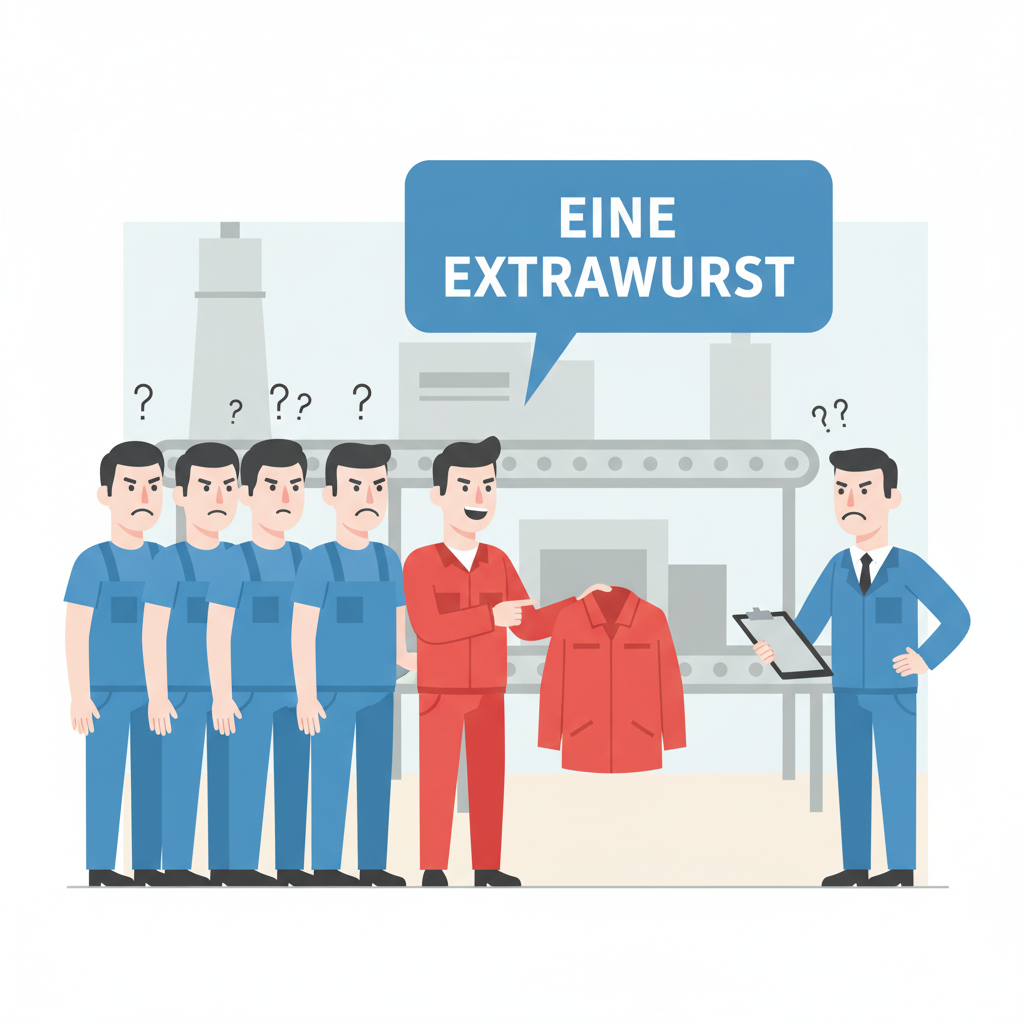
Hast du Tomaten auf den Augen?
Alex: Wo ist mein Handy? Ich kann es einfach nicht finden! (Where is my phone? I just can't find it!)
Ben: Alex, du hältst es in deiner Hand. (Alex, you're holding it in your hand.)
Alex: Oh.
Ben: Hast du Tomaten auf den Augen? (Are you blind?)
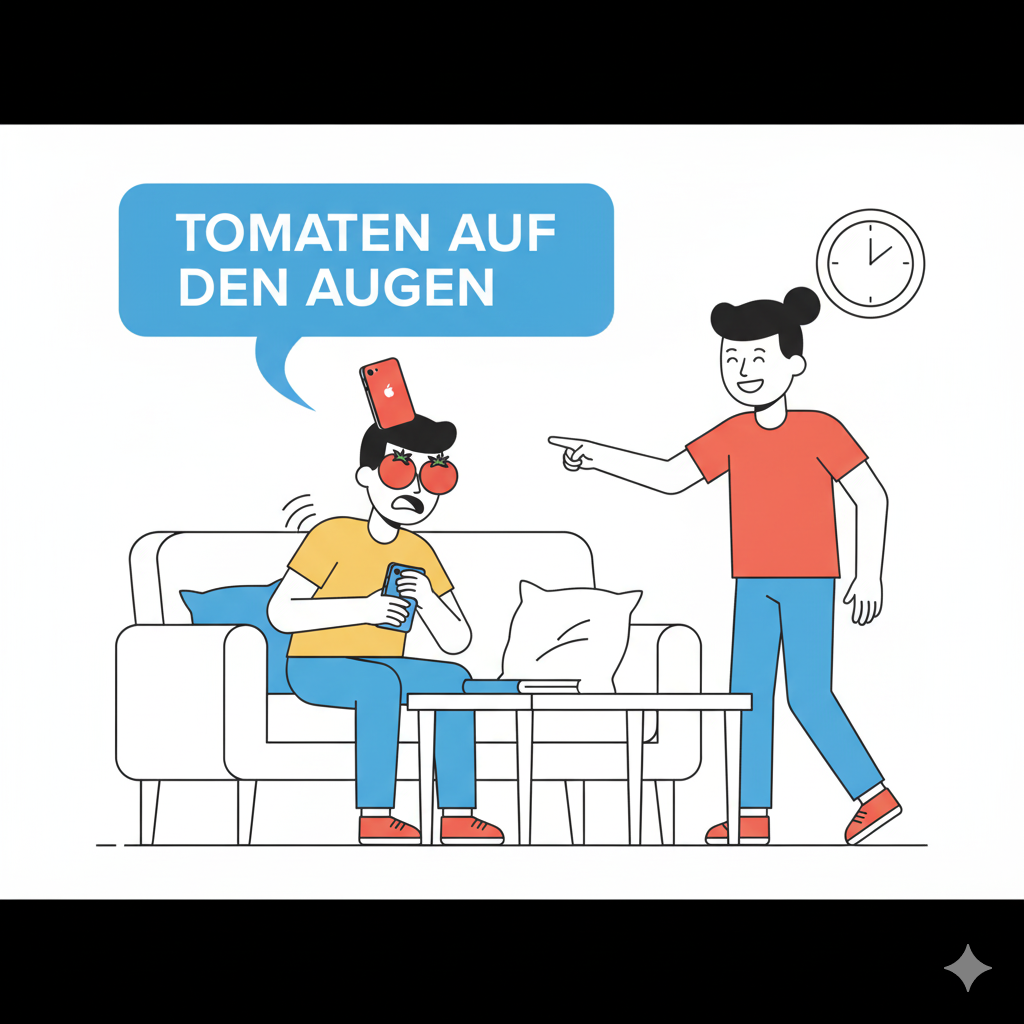
Da haben wir den Salat!
Vater: Fass die heiße Tasse nicht an! Du verbrennst dich! (Father: Don't touch the hot cup! You'll burn yourself!)
Kind: Ich bin vorsichtig! (Touches the cup anyway) Aua! Ich habe alles verschüttet! (Child: I'm being careful! (Touches the cup anyway) Ow! I spilled everything!)
Vater: Siehst du. Da haben wir den Salat! (Father: You see. Now we're in a mess!)
Ein schönen Tag noch
(Ich wünsche Ihnen/dir)... - (I wish you)... — This part is implied and left out.
Einen schönen Tag - a nice day. This is the direct object of the implied verb "wünschen," which is why it's in the accusative case.
(At a bakery checkout)
Verkäufer (Cashier): Das macht dann 4 Euro 50, bitte. (That will be 4 euros 50, please.)
Kunde (Customer): Hier, bitte. (Here you go.)
Verkäufer: Danke! Auf Wiedersehen und einen schönen Tag noch! (Thanks! Goodbye and have a nice day!)
Kunde: Danke, gleichfalls! (Thanks, you too!)
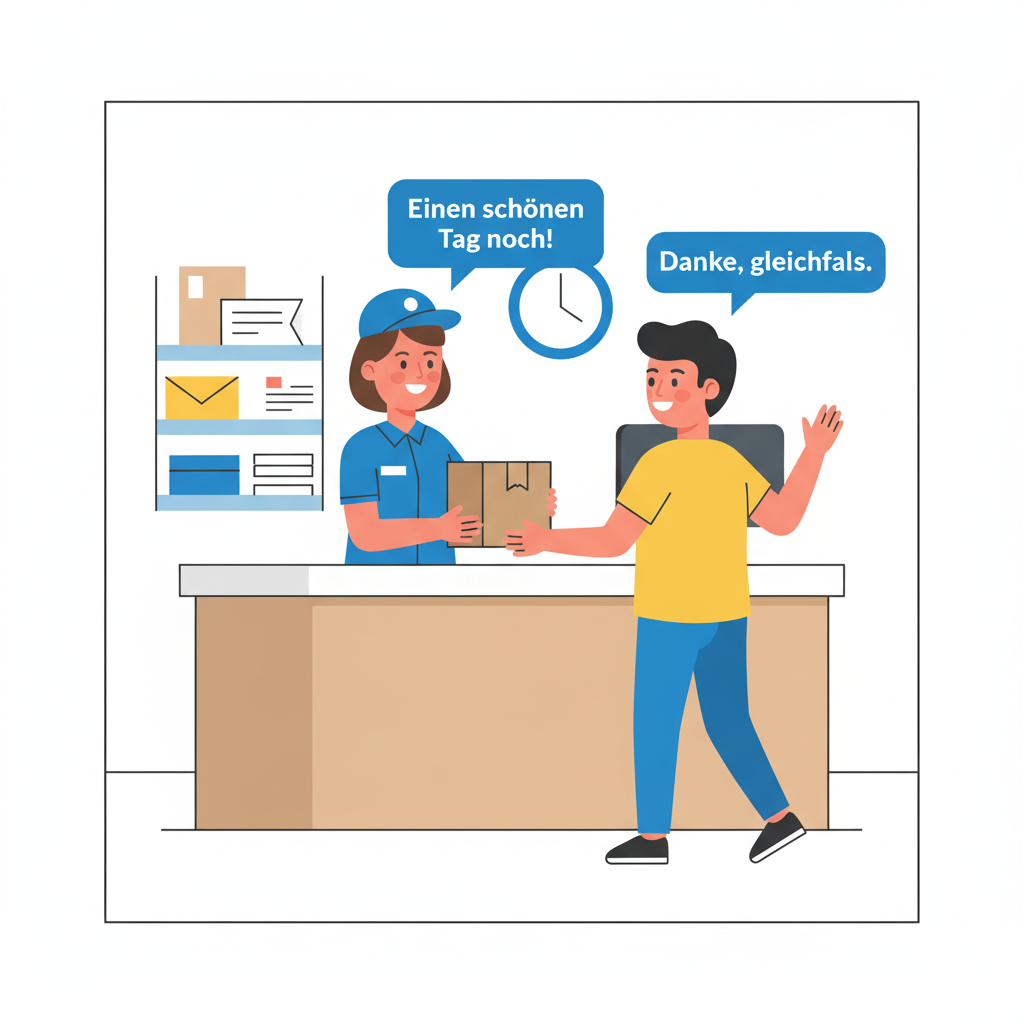
die Gescwister , Einzelkind
Anna: Hast du Geschwister?
Ben: Ja, ich habe einen Bruder und eine Schwester. Und du?
Anna: Nein, ich habe keine Geschwister. Ich bin Einzelkind.
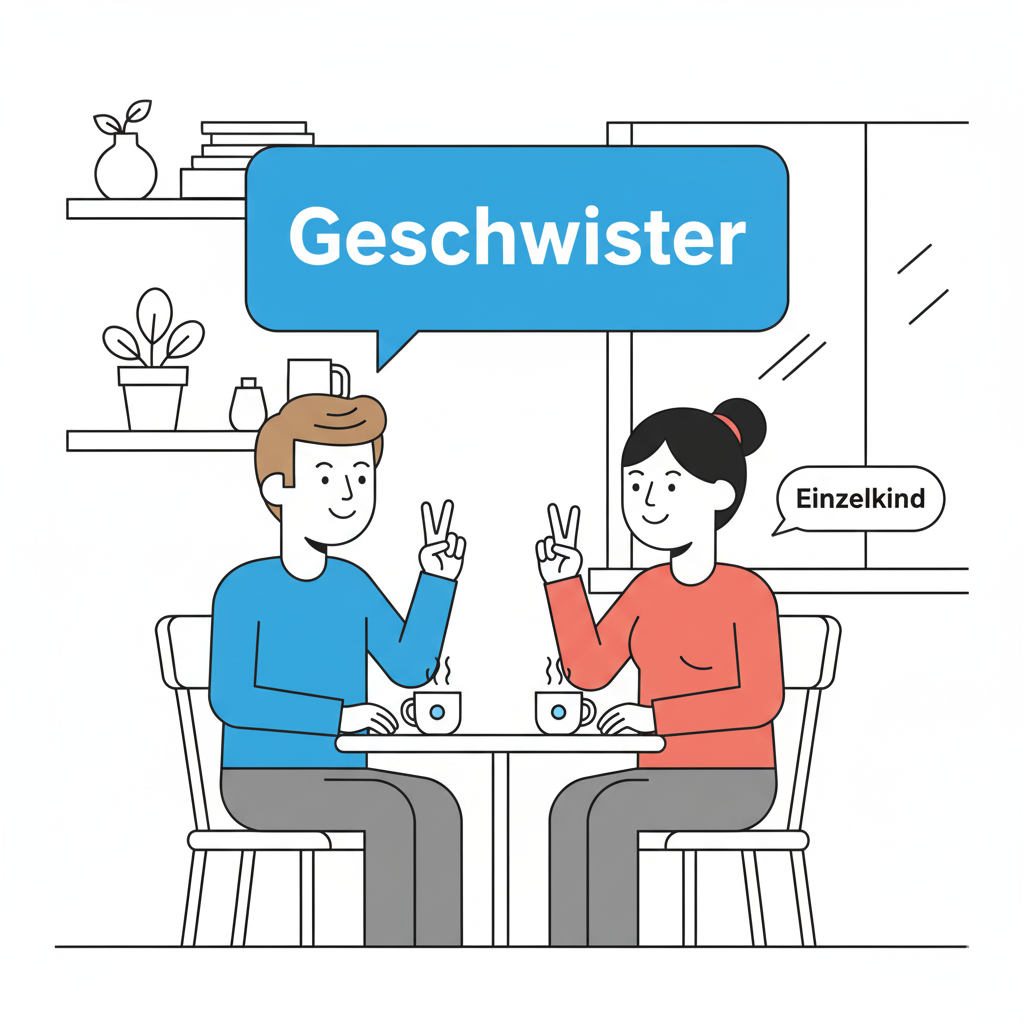
das Haustier, die Haustiere
das Haus (the house) + das Tier (the animal) = "the house animal"
Anna: Hast du Haustiere?
Ben: Ja, ich habe zwei Haustiere. Einen Hund und einen Kater. Und du?
Anna: Nein, ich habe keine Haustiere.
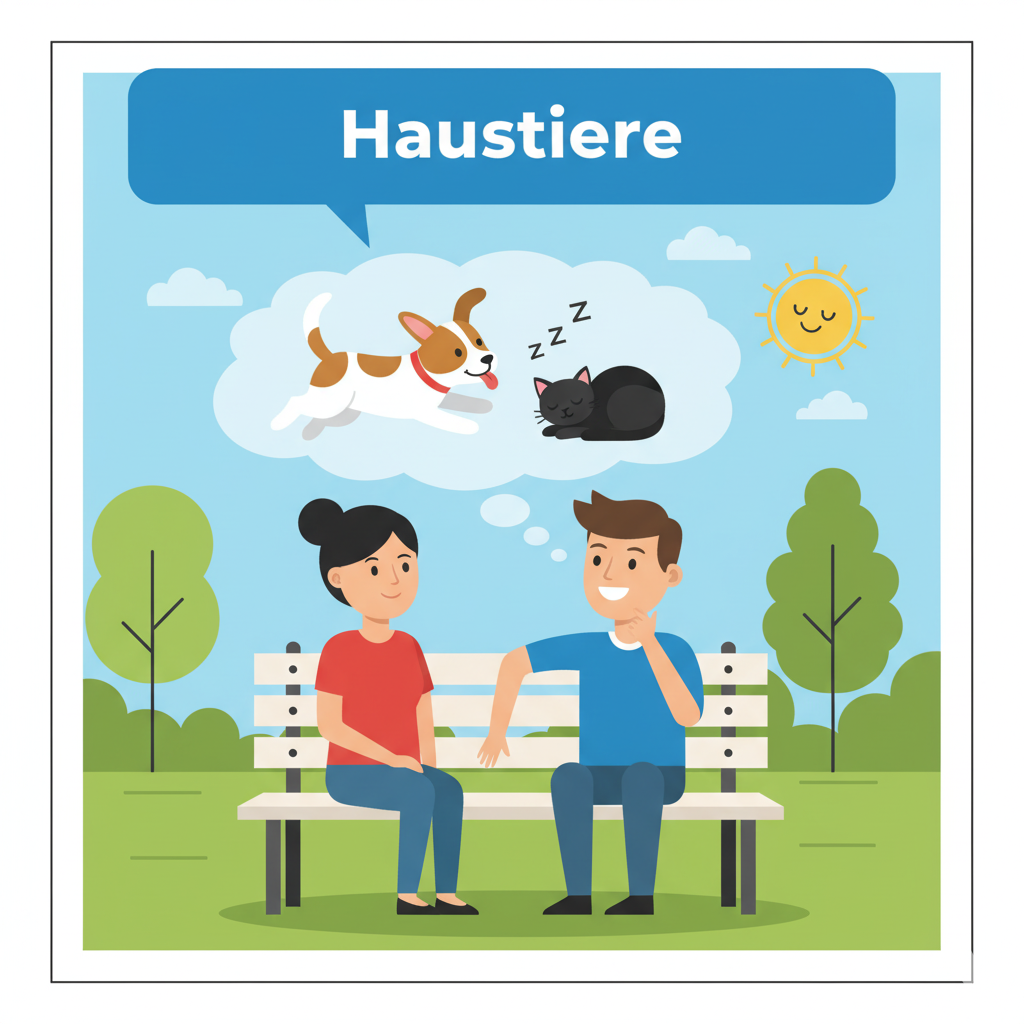
der Vogel, die Vögel
Maria: Schau! Ein Vogel sitzt auf dem Baum. (Look! A bird is sitting on the tree.)
Lukas: Oh ja! Und hör mal, die anderen Vögel singen. (Oh yes! And listen, the other birds are singing.)
Maria: Was für ein schöner Gesang! (What a beautiful song!)
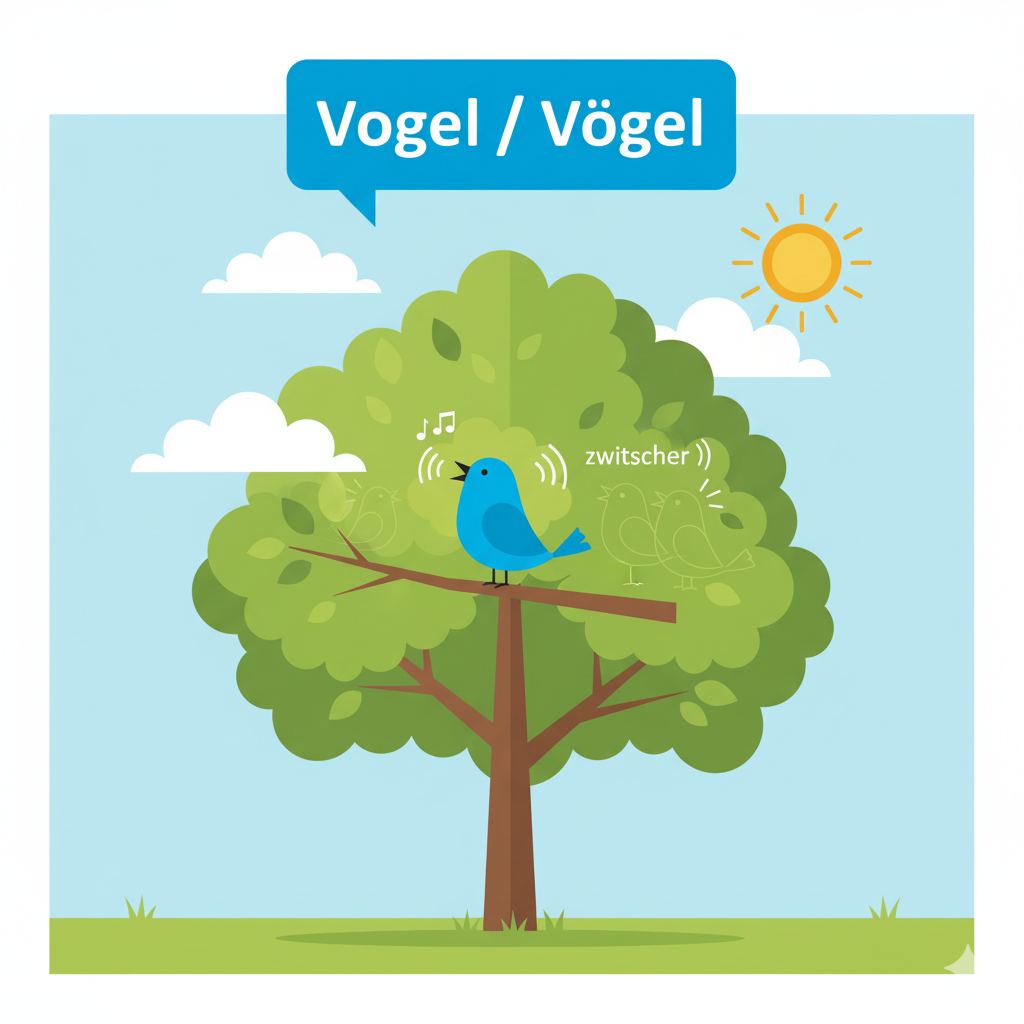
Hast du einen Vogel?
Jonas: Ich fahre mit dem Fahrrad von Berlin nach München. In zwei Tagen! (I'm riding my bike from Berlin to Munich. In two days!)
Lena: Was? Hast du einen Vogel? Das ist unmöglich! (What? Are you crazy? That's impossible!)
It comes from an old belief that a person acting strangely must have a small bird (einen kleinen Vogel) living and chirping inside their head, causing their crazy thoughts.
Du hast eine Meise = you have gone nuts
Bei dir peipt’s wohl! = same meaning.
peipt’s = it chirps. wohl = assume.
Sag mal = tell me.
Du spinnst wohl! = you must me crazy
Ich glaub, ich spinne! = I think , I am being crazy
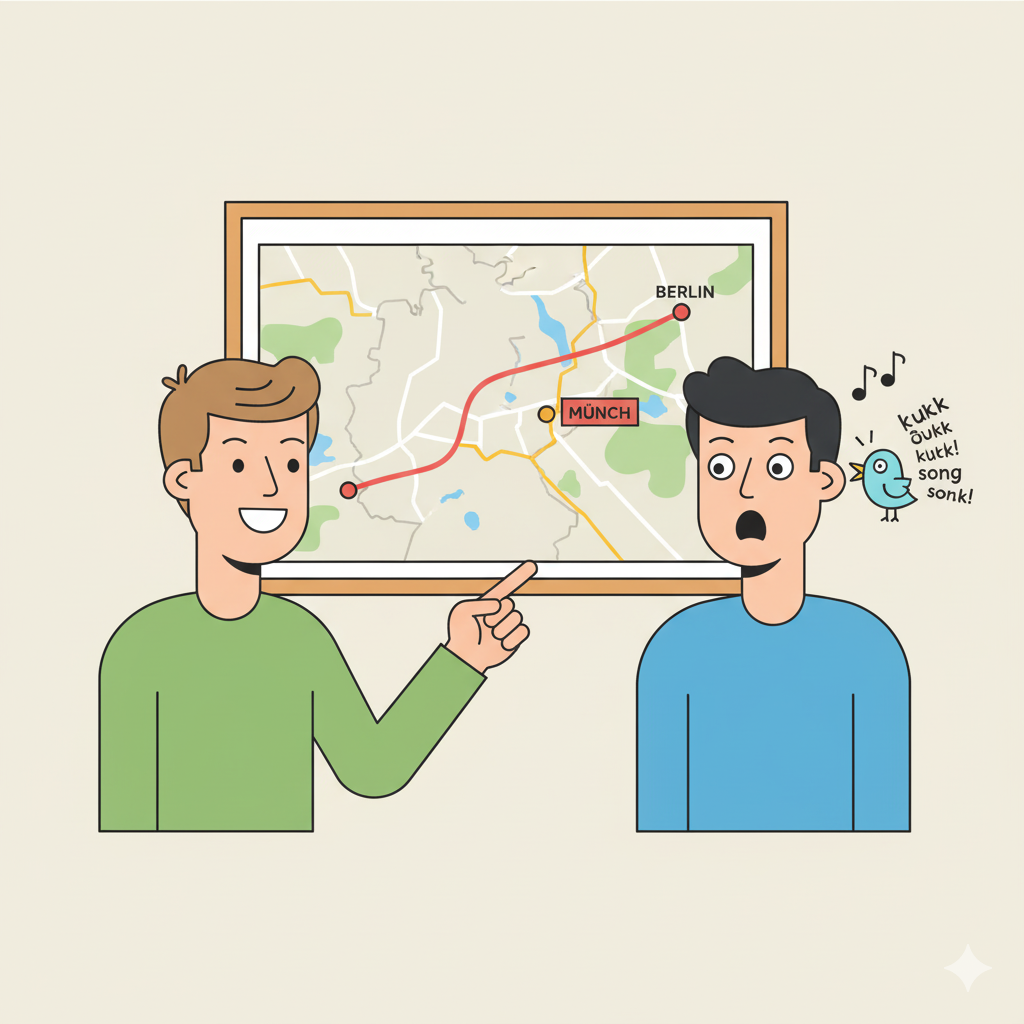
das Pferd, die Pferde
Back: Leo: Was ist dein Lieblingstier? (What is your favorite animal?)
Mia: Mein Lieblingstier ist das Pferd. Ich finde Pferde so elegant. (My favorite animal is the horse. I find horses so elegant.)
Leo: Ja, sie sind sehr schöne Tiere. (Yes, they are very beautiful animals.)
পফেয়ার্ট, পফেয়ার্ডে
